101 Easy Ways to Be a (Much) Healthier Man

Just the thought of trying to live a healthier lifestyle can be daunting, but now more than ever, we need to be taking our health seriously. You might think that the secret to a longer, more active life is spending hours every day working out and scheduling endless doctor’s appointments, leaving no time for anything else. In reality, these are plenty of simpler ways to improve your health. Work out a few times a week, balance your steak dinners with healthy egg breakfasts, and see a doctor only a few times a year, and you’ll find yourself feeling better—physically, mentally, and emotionally. Read on to discover 101 of the best and easiest healthy habits for men to follow. And for more health tips, check out these 100 Easy Ways to Be a Much Healthier Person, According to Science.
1
Eat more walnuts.
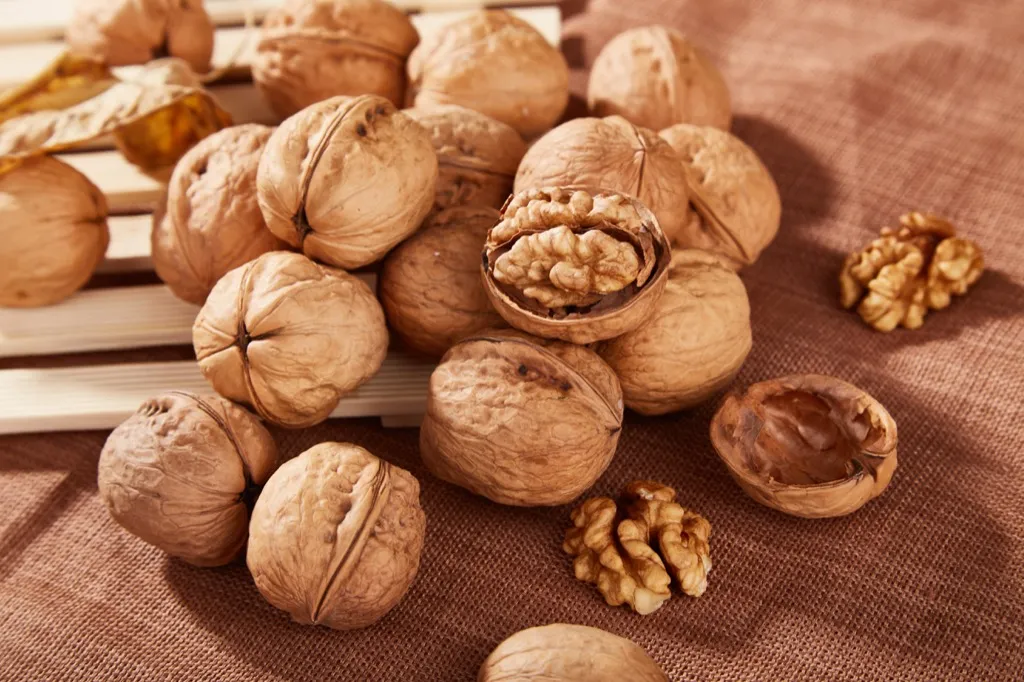
Walnuts aren’t just delicious. They’re also helpful when it comes to your heart health. One 2019 study published in the Journal of the American Heart Association found that when subjects added walnuts to a low-fat diet, they were successfully able to lower their blood pressure. And low blood pressure is associated with a reduced risk of cardiovascular disease.
2
Make new friends.

You may not be able to meet new people in person right now, but doing so virtually could have significant health benefits. As it turns out, having a lot of friends might just be the key to longevity. One oft-cited 2005 study published in the Journal of Epidemiology and Community Health found that, among 1,477 individuals, the people with the most friends lived an average of 22 percent longer than the people with the least friends. And for more ways to live longer, discover 100 Ways to Live to 100.
3
Ask your doctor for an EKG test.
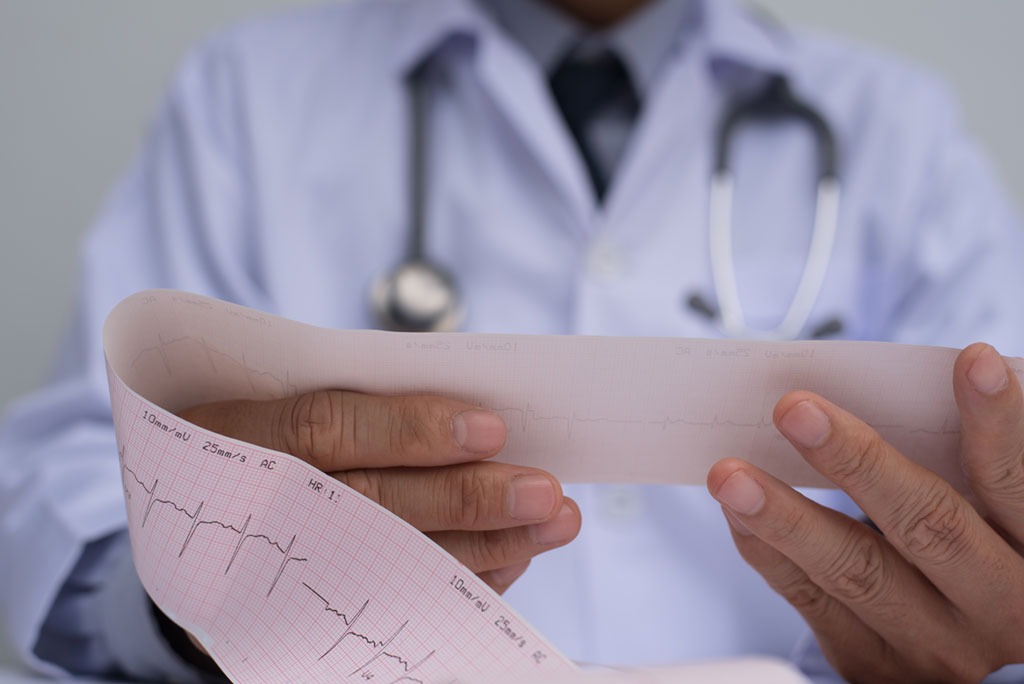
It’s when you’re young and in your prime that you should start getting EKGs. This provides a healthy baseline that your doctor can eventually use to compare future EKG results against. And for more areas to monitor, learn the 50 Signs of Poor Health Men Should Never Ignore.
4
Walk or bike ride instead of taking the car.

While you’re likely not driving as much as you used to these days, you still have places to be. Save yourself some money and live a healthier life by walking or biking instead of driving. One 2014 study published in the British Medical Journal found that men who actively commuted had BMI scores an average of 1 point lower than those who passively traveled, translating to a difference of nearly 7 pounds.
5
Monitor your ibuprofen intake.
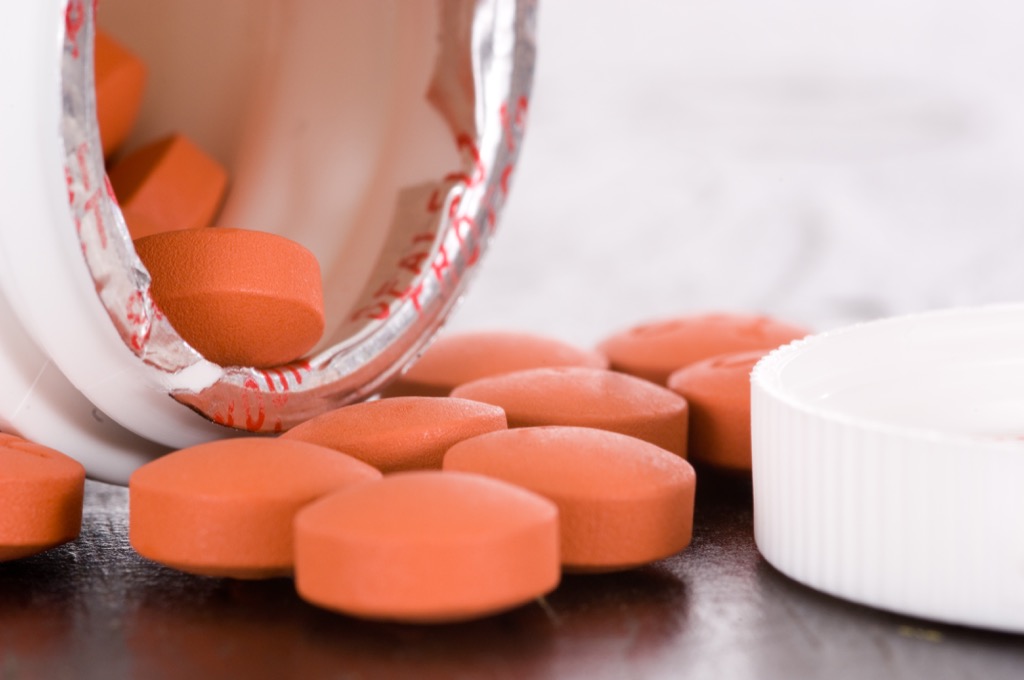
Though the over-the-counter painkillers known as nonsteroidal anti-inflammatory drugs (or NSAIDs) serve their purpose when you’re in pain, they should only be used in moderation. According to the National Kidney Foundation, anywhere from 3 to 5 percent of new chronic kidney failure cases every year are caused by overuse of these drugs, seeing as they can damage kidney tissue and limit blood flow.
6
And wash down ibuprofen with caffeine.

When you do need to take a painkiller, do so with coffee. Ibuprofen taken with a caffeinated beverage can relieve headaches and other pains more effectively than ibuprofen taken with water, according to a 2015 research analysis published in the Cochrane Database of Systematic Reviews.
7
Be more optimistic!

Multiple studies—including a 2010 study published in Clinical Practice & Epidemiology in Mental Health—have found that people tend to handle stress more effectively if they can believe that things are improving and maintain a positive attitude. Taking that old-fashioned advice to always look on the bright side of life could be enough to alleviate your anxiety and live a long and happy life.
8
Cut back on your red meat intake.
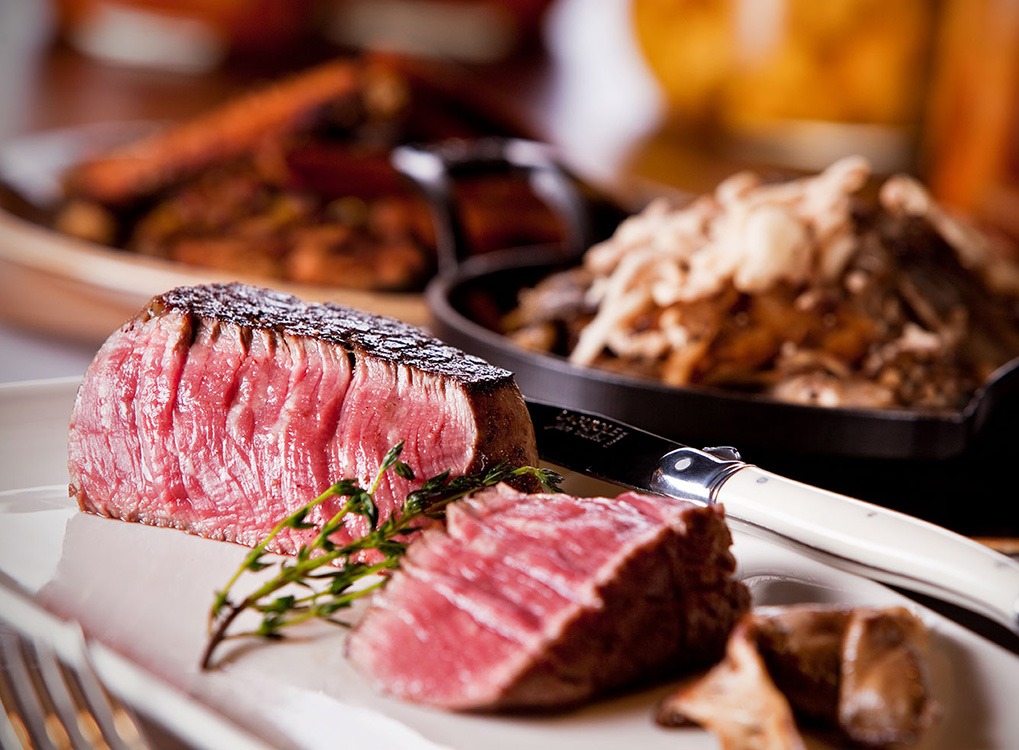
Save your favorite slab of steak for a special occasion. Significant research published in the journal Arteriosclerosis, Thrombosis and Vascular Biology in 1997 found that healthy men produced 60 percent more dangerous clotting agents after they ate high-fat meals loaded with meat and dairy. And for more simple changes to make, try these 40 Tiny Health Adjustments That Can Change Your Life After 40.
9
Maintain a happy marriage.

If you’re frequently fighting with your significant other, then it’s in your best interest—both from a mental and physical health perspective—to either mend your relationship or move on. One major 2005 study published in the Archives of General Psychiatry found that individuals in unhappy marriages had longer healing times compared to those who were content. And for advice on making the most of your marriage, here are the 50 Best Marriage Tips of All Time, According to Relationship Experts.
10
And do something every day that makes your spouse smile.

A 2019 study published in the journal Psychological Science found that over an eight-year period, individuals with happy partners were less likely to die than those with sad spouses. Researchers believe that this is because when people are sad, their diet and exercise tends to fall by the wayside—and when a person’s partner is unhealthy, it tends to have an effect on them as well.
11
Volunteer.
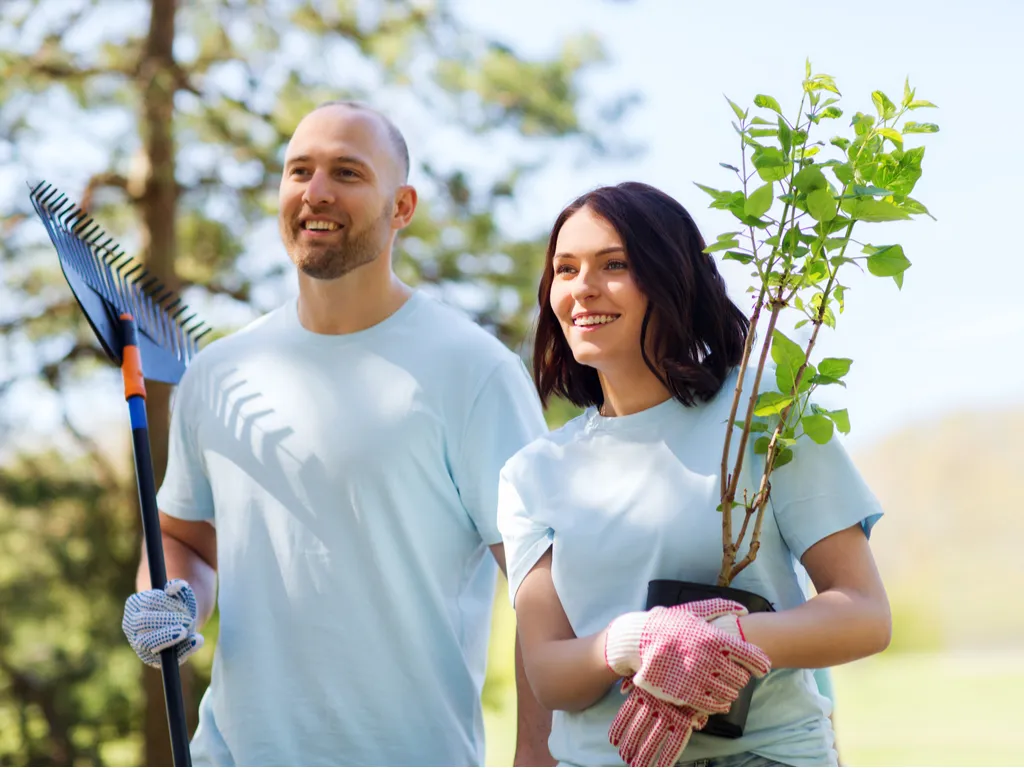
Being selfless can benefit you just as much as it benefits the people or causes you’re helping. One 2012 study published in the journal Health Psychology found that while 4.3 percent of individuals who didn’t volunteer were deceased by the end of the 55-year research period—only 1.6 percent of those who volunteered for selfless reasons were.
12
Slow your breathing when you feel your heart rate speeding up.
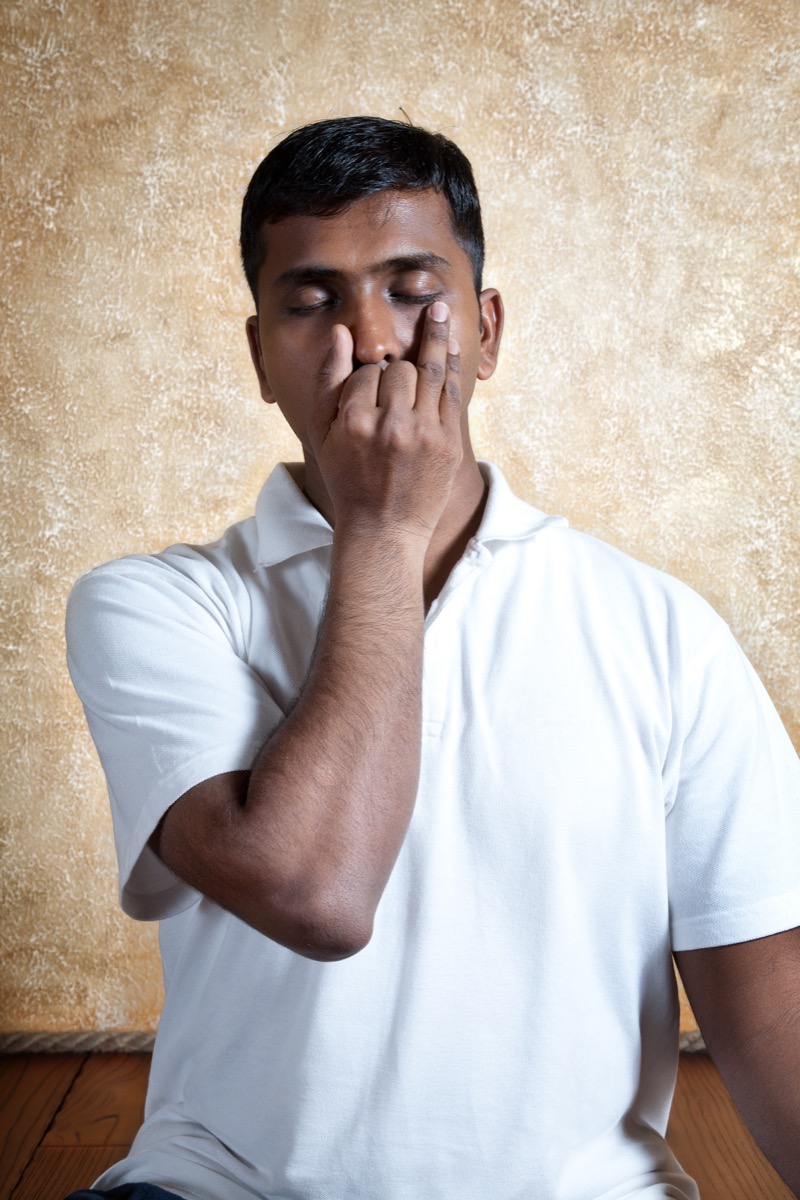
Though panic attacks can make a person feel like they’re losing control, there is a way to combat them. To maintain homeostasis when a panic attack comes on, simply breathe in through your nose while pinching one nostril shut. This will allow you to breathe more slowly as you can’t inhale as much air at once through one nostril as you can through your mouth.
13
Wash your pillowcase weekly.

Research conducted by Amerisleep in 2018 analyzed a week-old pillowcase and found that it contained some 3 million colony-forming units of bacteria per square inch—that’s 17,442 times more than what you’d find on a toilet seat. So if you want to stay healthy, give that pillowcase a weekly wash.
14
Take a virtual group exercise class.
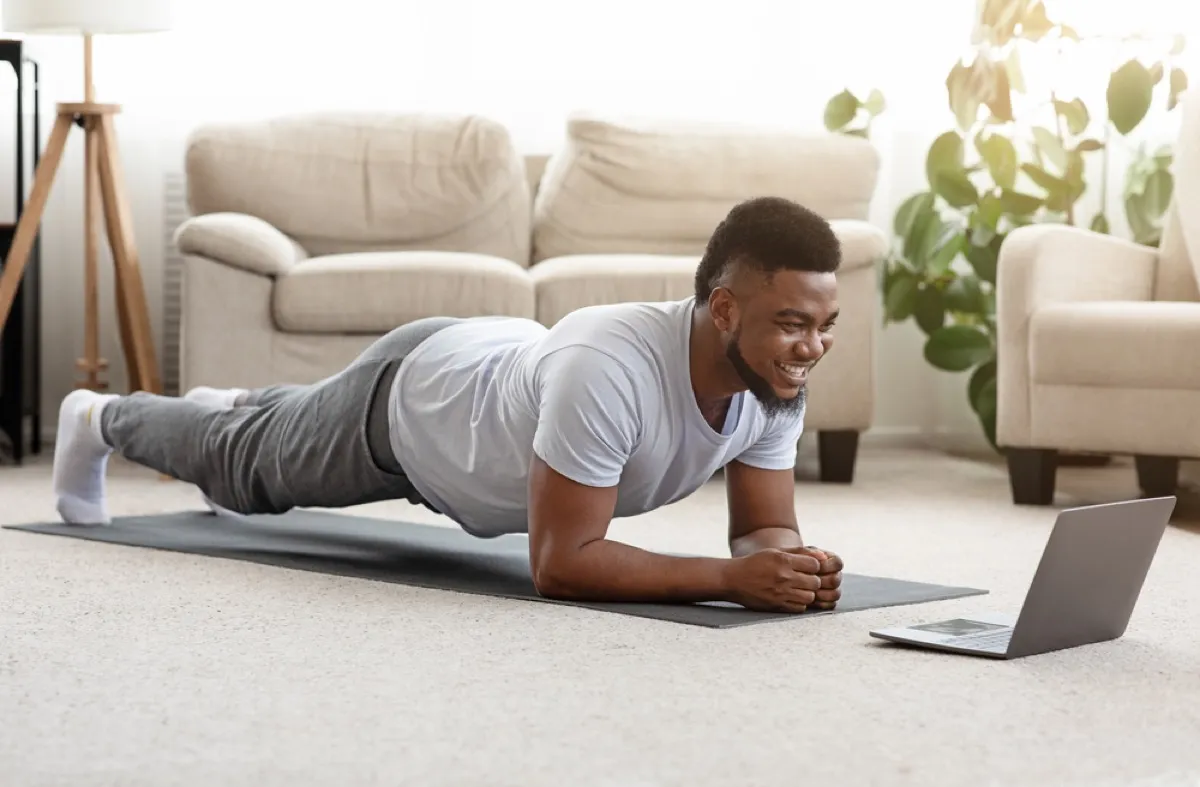
Feeling anxious or overwhelmed? Sign up for an online workout class. One 2017 study published in the Journal of the American Osteopathic Association found that individuals who worked out in group settings were able to reduce their stress levels by 26 percent. You may not be able to take in-person exercise classes right now, but there are still ways to work out with others.
15
Schedule a nap into your day.

According to sleep experts interviewed by the The Wall Street Journal, if your ultimate goal is alertness, the ideal nap length is only 20 minutes. However, if what you desire is improved memory function, then 60 minutes is best for your mid-afternoon snooze.
16
Wear sunscreen—regardless of the season.

Whether it’s a chilly day in the middle of December or a scorching summer Friday in August, make sure that you aren’t leaving the house without applying sunscreen. Though the UVB rays that cause sunburns decrease in the winter, the UVA rays that can lead to wrinkles, aging, and even skin cancer remain.
17
Take the stairs.
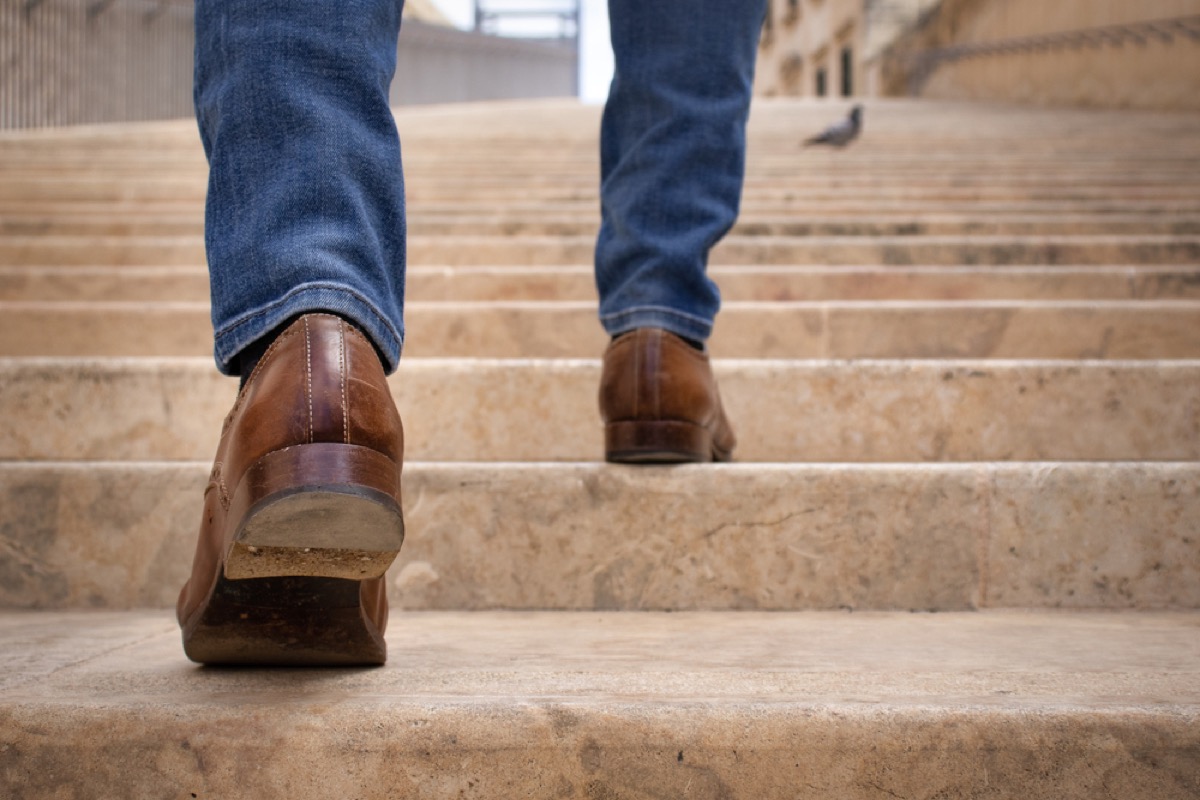
Opting for the stairs over the elevator isn’t just a wise decision for your waistline. One 2017 study published in the journal Physiology & Behavior found that just 10 minutes of stairwell activity resulted in more of an energy boost than 50 milligrams of caffeine, the equivalent of half a cup of coffee.
18
Drink cherry juice before bed.
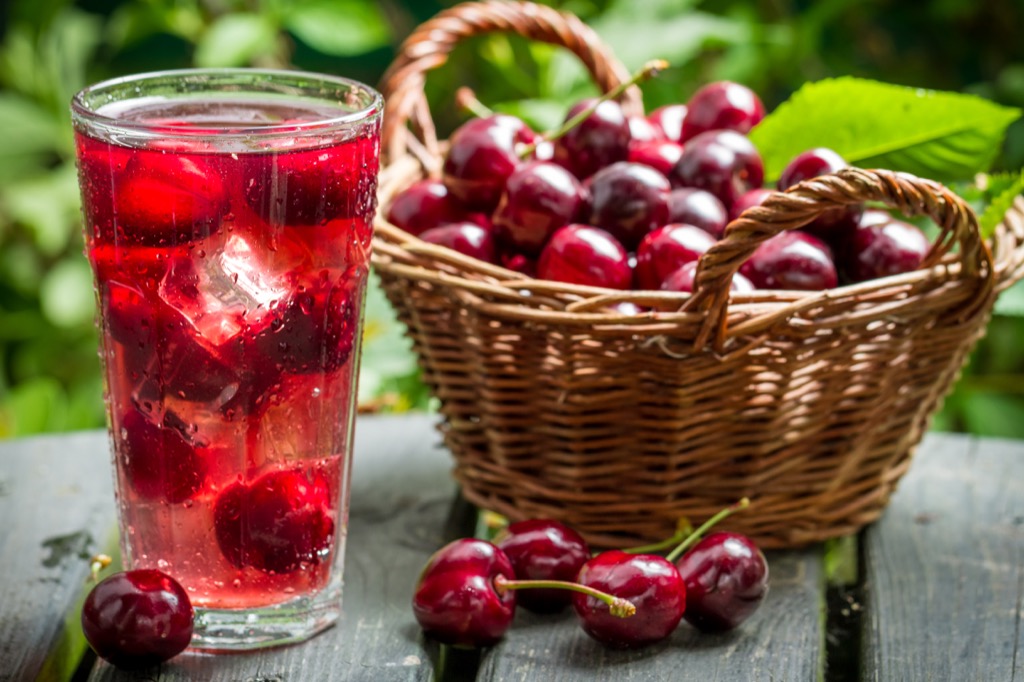
Why cherry juice? Well, tart cherries are a natural source of melatonin, a hormone that assists in the regulation of the body’s sleep-wake cycle. Just make sure not to stock up on processed cherry juice, as the added sugar included in this drink can actually keep you awake rather than helping you fall asleep.
19
And snack on some cottage cheese.
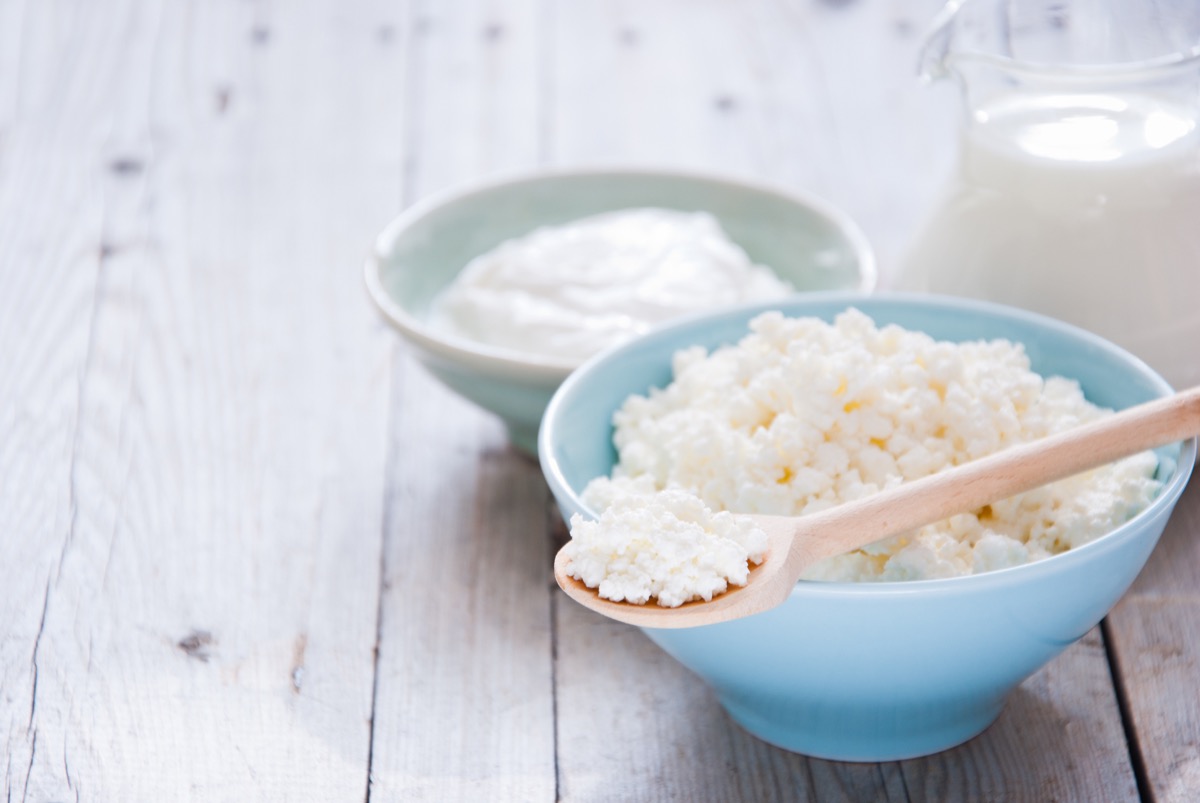
Most men already know that protein is the perfect nutrient when it comes to adding muscle mass and trimming down. However, one 2018 study published in the British Journal of Nutrition found that specifically, eating a snack with 30 grams of protein anywhere from 30 to 60 minutes before bed was associated with better muscle quality and a faster metabolism.
20
Eat the right food before bed.
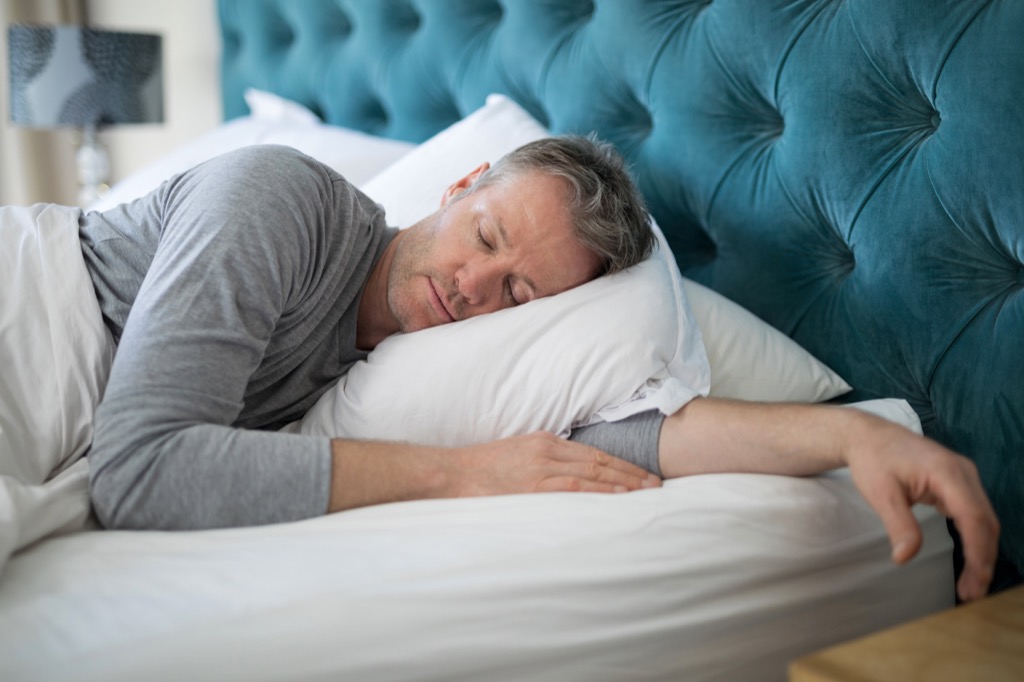
Speaking of, if you want a good night’s sleep, the following foods are natural sources of melatonin and can help get you there, according to the National Sleep Foundation:
- Almonds and walnuts
- Fruits like raspberries, bananas, pineapples, oranges, kiwis, prunes, plums, and the aforementioned tart cherries
- Chamomile, ginger, and peppermint tea (sans caffeine, of course)
- A glass of warm milk (yes, it’s actually a thing!)
21
Practice balancing on one leg at a time.

Use the seconds that you spend brushing your teeth to work on your balance and nimbleness. According to the Cleveland Clinic, all you have to do is balance on each leg for 10 seconds at a time while you clean your pearly whites.
22
Skip that trip to the tanning bed.

If you have a choice between going to the tanning beds and talking a walk in the actual sun, always opt for the latter (with sunscreen, of course). One notable 2007 analysis published in the International Journal of Cancer found that individuals who first started using tanning beds before they turned 35 were as much as 75 percent more likely to develop melanoma.
23
Eat a lot of fiber.
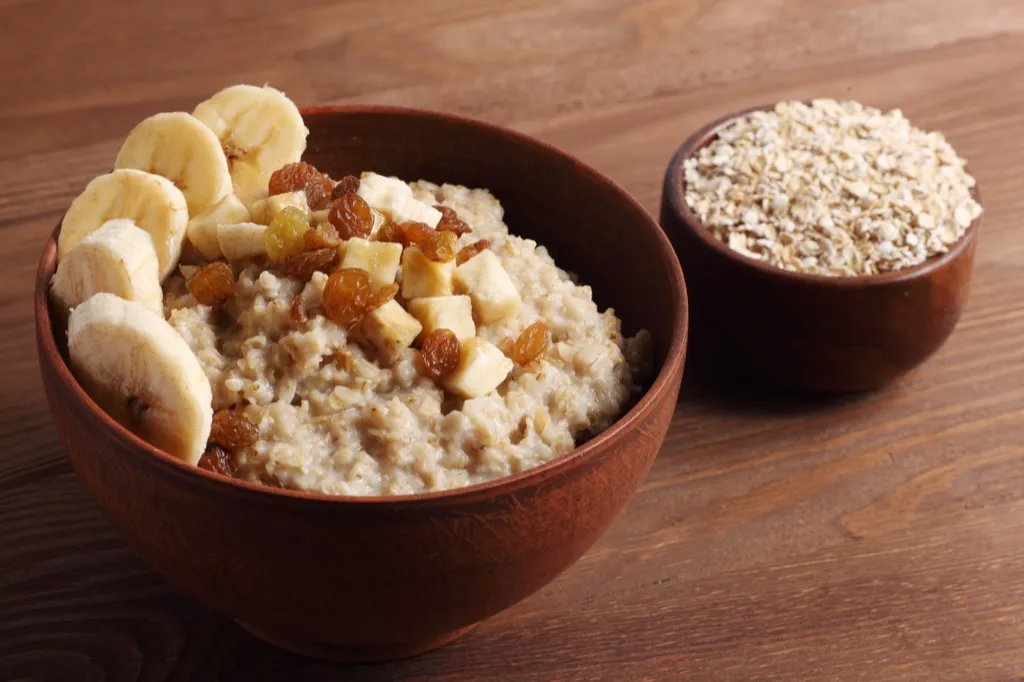
Pay attention to your daily fiber intake. One major 2009 study published in the journal Nutrition Reviews notes that some of the benefits of a high-fiber diet include a reduced risk for diabetes, a healthier heart, and more balanced blood pressure.
24
Spend at least two hours a week outside.
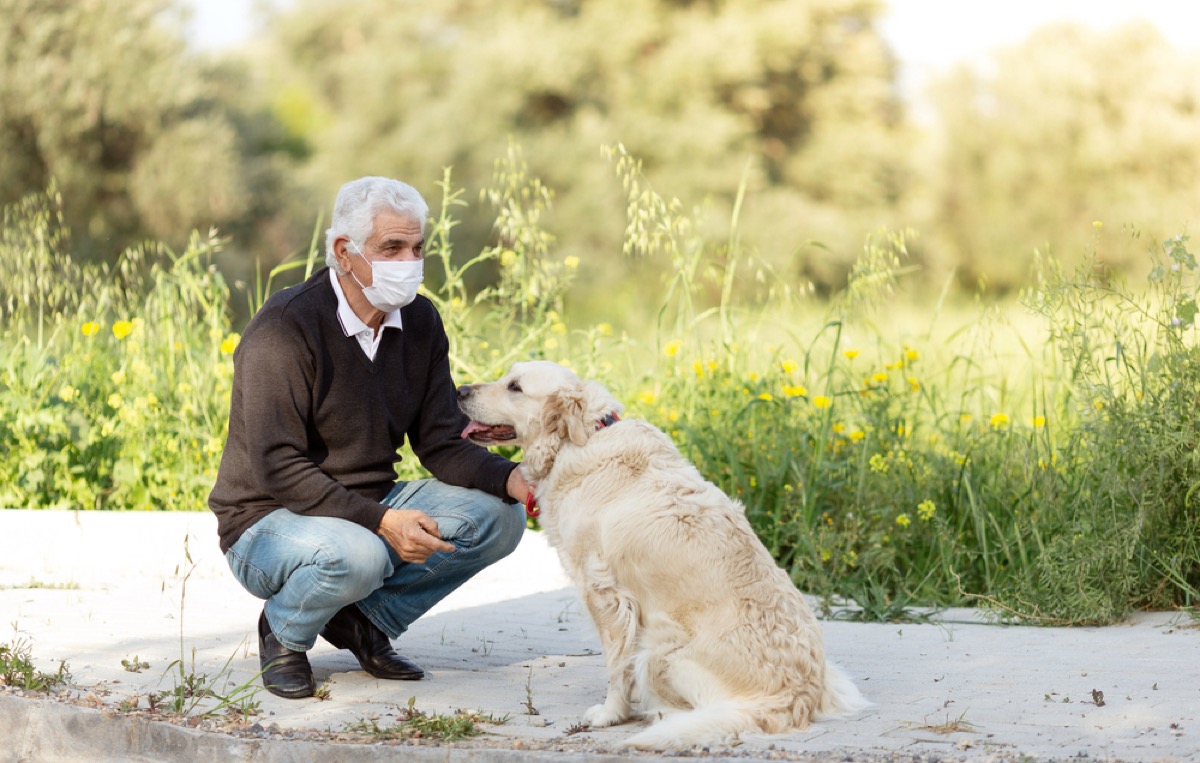
Why two hours? That’s the minimum amount needed for optimal physical and mental well-being, according to a 2019 study published in the journal Scientific Reports. So, whether your setting of choice is the park or the beach, make sure to spend at least 120 minutes every week enjoying what nature has to offer.
25
Give your dog some cuddles.

To lower your risk of heart attack and stroke, get a dog. Seriously! An oft-cited 1988 study published in the Journal of Behavioral Medicine found that petting a dog when you’re under stress can keep your blood pressure down.
26
Incorporate weights into your workout routine.
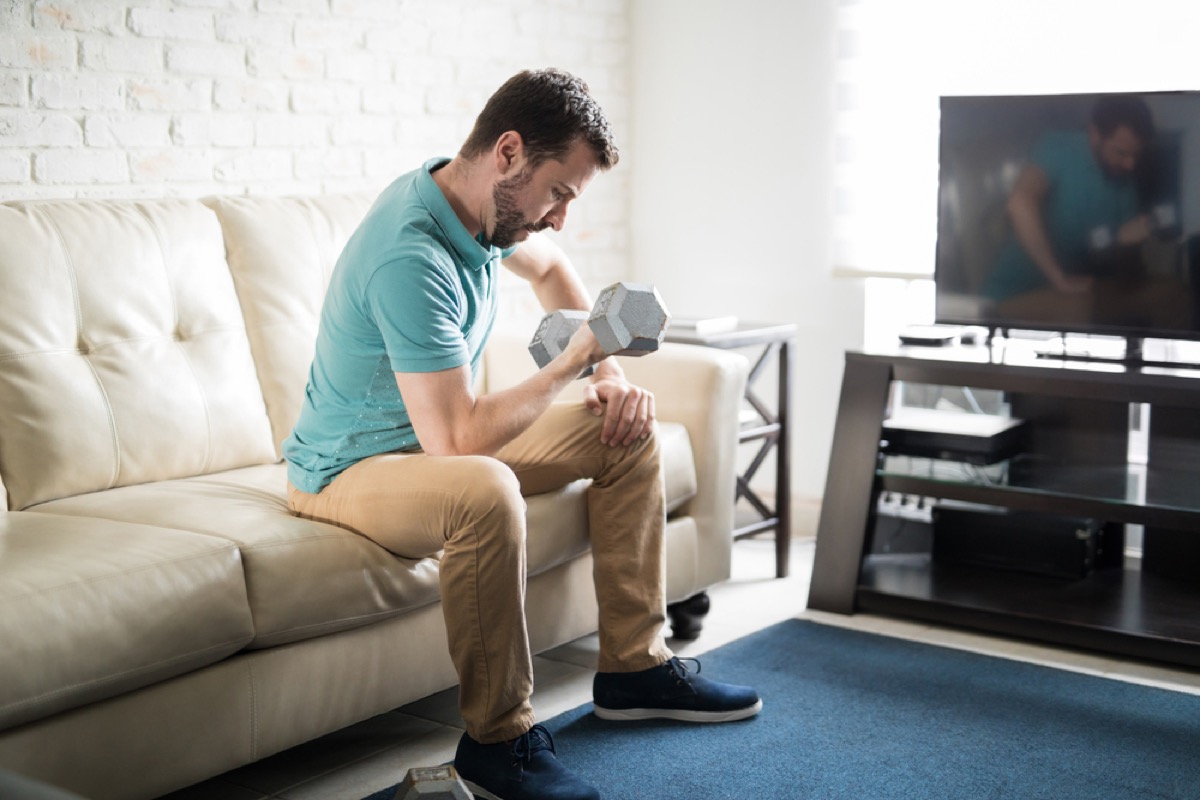
Weights make your biceps look good—but they can also protect your heart. In fact, one 2018 study from Iowa State University found that less than an hour of weight-lifting a week is enough to reduce your risk for a heart attack or stroke by anywhere from 40 to 70 percent.
27
Drink more OJ.
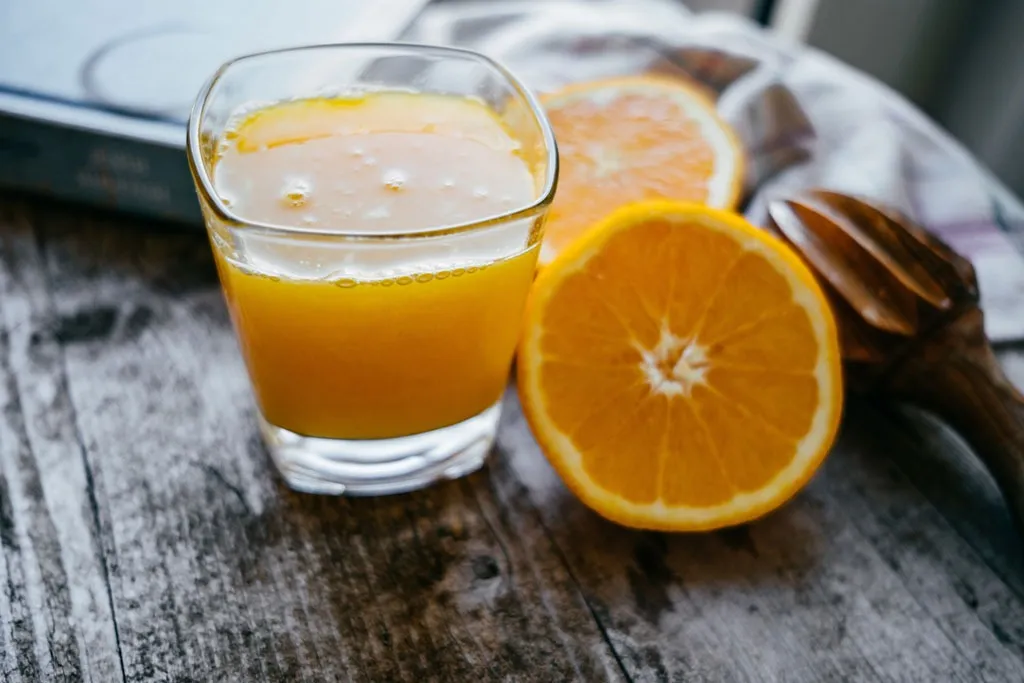
HDL is the “good” cholesterol found in your arteries—in other words, the cholesterol you actually want. So how do you get it? Well, one notable 2000 study published in the American Journal of Clinical Nutrition found that healthy men and women who drank three cups of orange juice daily successfully increased their HDL cholesterol by 21 percent and decreased their LDL-HDL cholesterol ratio by an average of 16 percent over a four-week period.
28
Track your water intake.

With all of the tedious tasks occupying your day, the last thing on your mind is drinking water. However, you want—nay, need—to drink at least four to six eight-ounce glasses of water per day, according to Harvard Medical School. Some of the side effects of dehydration include far more frequent headaches, saggier skin, and slowed brain function.
29
Start every morning with a moment of mindfulness.
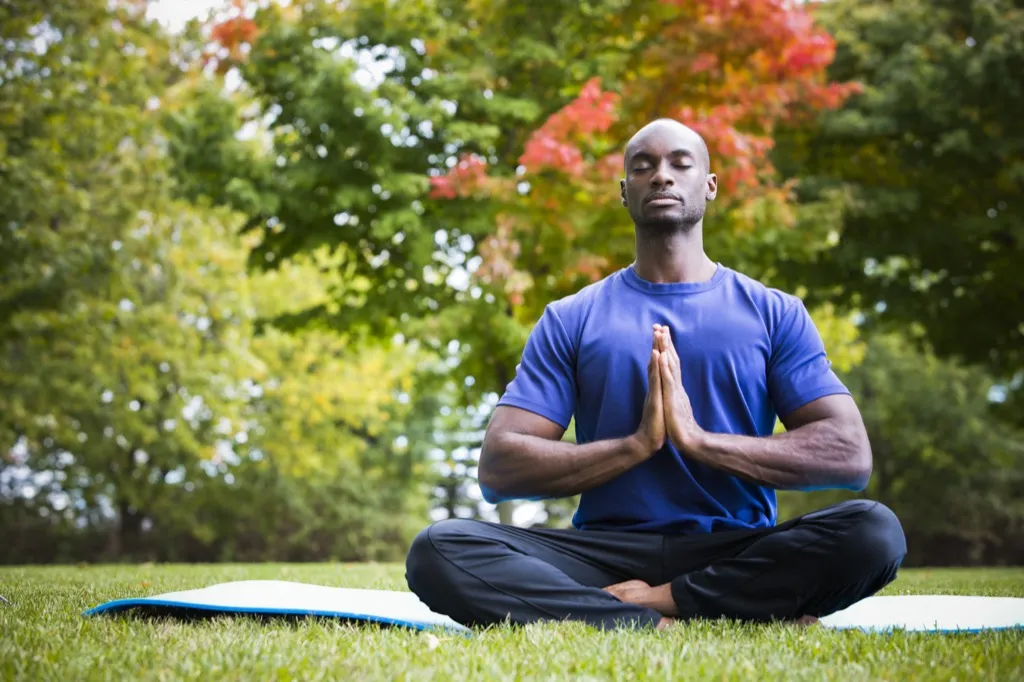
Setting the right tone for each day only requires five to ten minutes of your time. As social worker Brittani Persha, LCSW-S, owner of Brittani Persha Counseling, explains, doing a 5- to 10-minute mindfulness exercise in the morning “helps you to clear your head and be intentional about being present.” Headspace and Insight Timer are her go-to apps for a little morning anxiety relief.
30
And meditate to have a more restful sleep.

That’s right—simply setting aside a few minutes of your night to breathe deeply and practice mindfulness can not only help combat insomnia, but it can also help you receive a more restful sleep, according to a 2015 study published in the journal JAMA Internal Medicine.
In the study, those who practiced mindfulness and meditation on a regular basis found their sleep to be much more restful than their counterparts who merely followed generic “best sleep practices.” By slowing down the rate of your heart with meditation and mindfulness, you are signaling to the rest of your body—namely, your brain—that you’re ready for a good night’s sleep.
31
Wash your hands the right way.
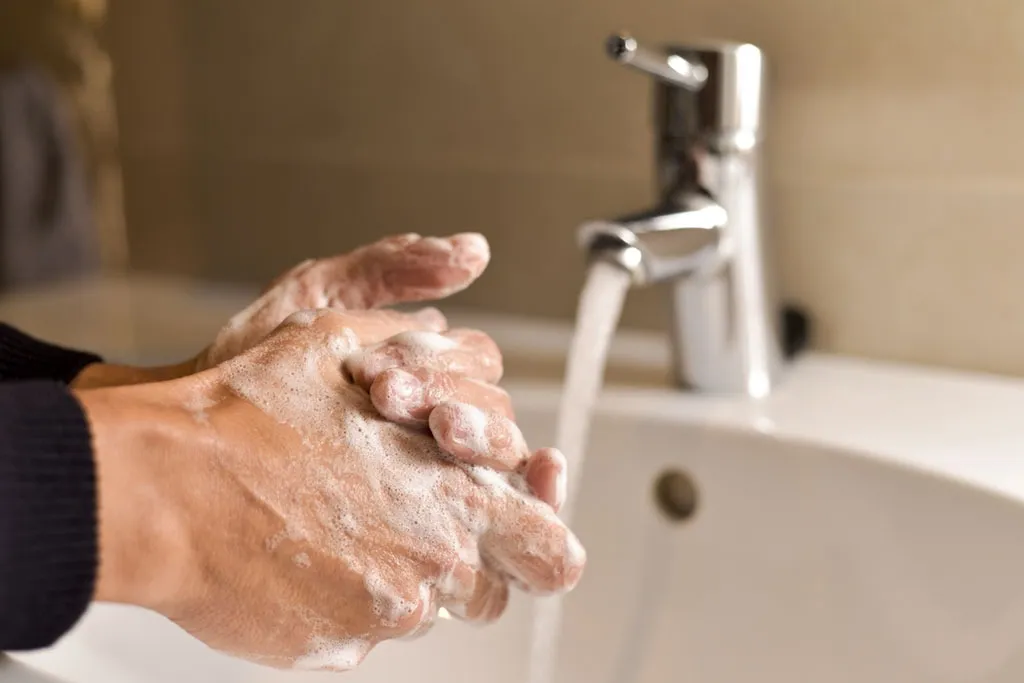
As you surely know by now, there is a right way to wash your hands. But in case you need a reminder, the Minnesota Department of Health says you should be lathering your hands with soap for at least 20 seconds in a way that’s vigorous enough to remove dirt and debris. Doing so will better protect you from the harmful germs that you come in contact with on a daily basis.
32
Always hydrate after an intense sweat session.
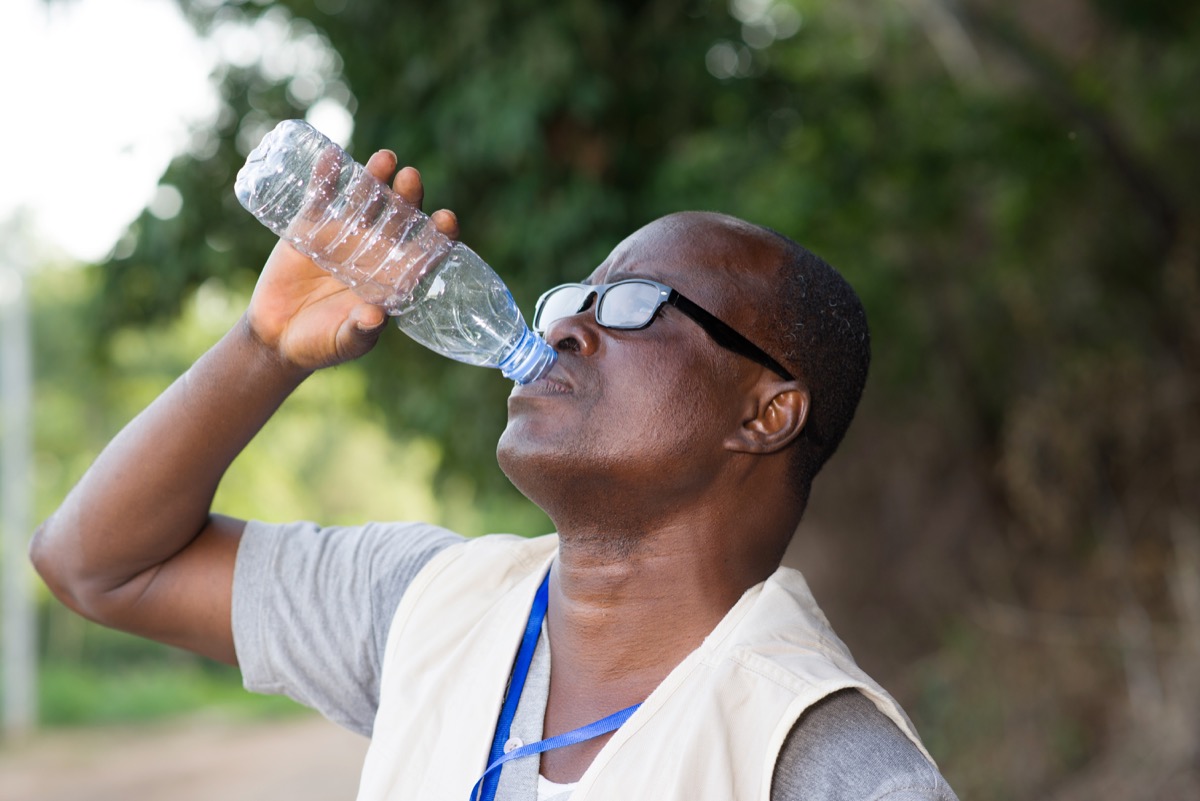
Any man who’s ever passed a kidney stone can attest to the fact that they are not fun. Thankfully, there are ways to prevent them from happening in the first place. According to the National Kidney Foundation, making sure to rehydrate after particularly sweaty activities like a hot yoga class or a stint in the sauna is one way to avoid kidney stones.
“Loss of water through sweating leads to less urine production,” the organization explains. “The more you sweat, the less you urinate, which allows for stone-causing minerals to settle and bond in the kidneys and urinary tract.”
33
Replace your go-to beer with a lower-cal cocktail.
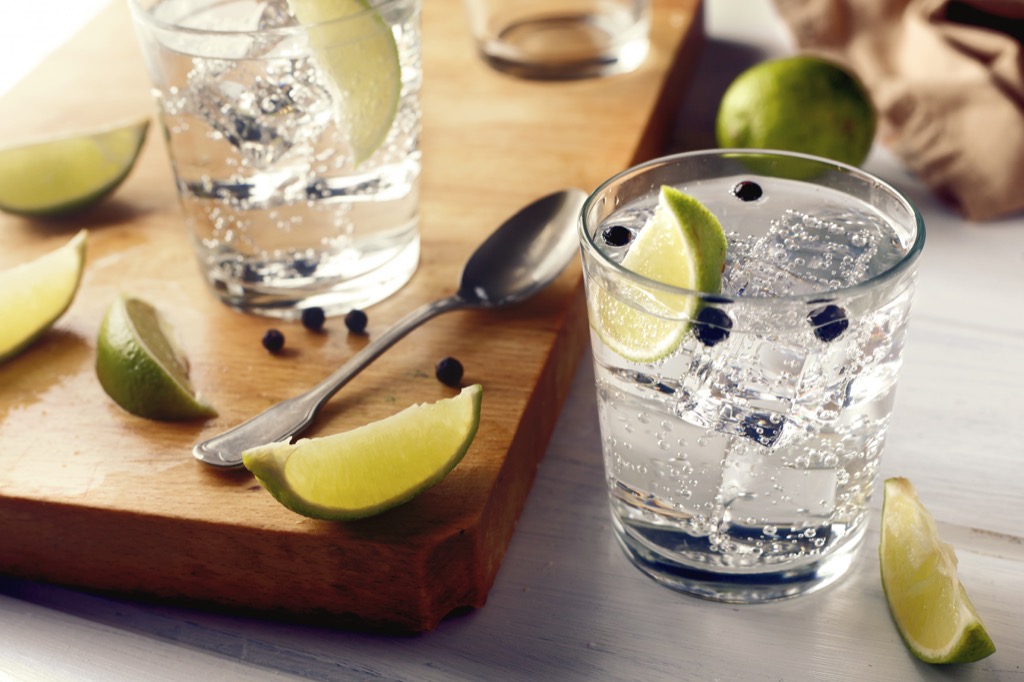
As far as alcohol goes, beer is both one of the most caloric and one of the most carb-heavy options. As the U.S. Department of Health and Human Services notes, the average serving of beer contains approximately 153 calories, whereas you can enjoy a glass of wine with as few as 75 calories and a straight glass of liquor for just 97.
34
Keep essential medical information on hand.

In your wallet, keep a list that includes your drug sensitivities or allergies, all of the prescription and nonprescription drugs you are taking, the name and phone number of your primary care physician, any medical conditions you are being treated for, your blood type, and your emergency contact information. Having some of your most important medical information with you at all times could be the difference between life and death in a serious emergency situation, especially if you find yourself passed out or otherwise unable to speak.
35
Take a PSA test.

A PSA test is what doctors use to screen for prostate cancer. Both the American Cancer Society and the American Urological Association recommend getting this test every two years beginning between the ages of 50 and 55. If you’re African-American, or if you have a family history of prostate cancer, start this test at 45. Your doctor may not be performing PSA tests right now, but you should be able to schedule one.
36
Stretch after strenuous workouts.
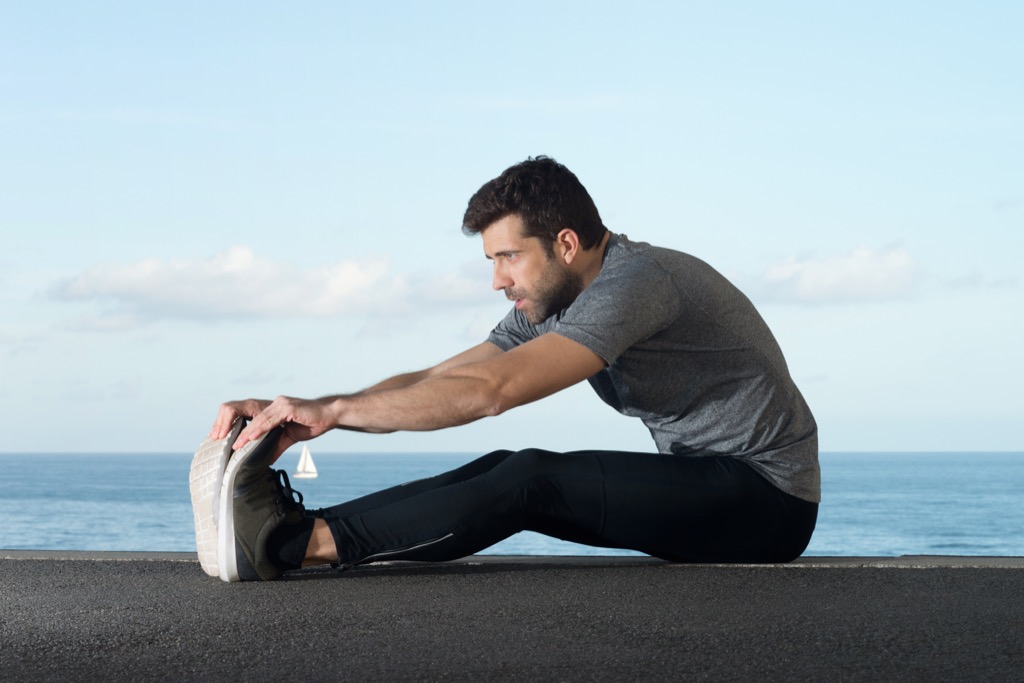
As we get older, our muscles become less and less pliable. After intense workouts especially, it’s important that you take the extra few minutes to stretch out your limbs so that they don’t tense up and tighten. According to Harvard Medical School, you should aim to do flexibility exercises at least two to three times a week. Through your routine, try to hit each muscle-tendon group: the neck, shoulders, chest, trunk, lower back, hips, legs, and ankles.
37
Add more upbeat tunes to your workout playlist.

It might be time to pass on all those laid-back workout tunes. One 2019 study from the University of British Columbia found that when individuals underwent sprint interval training, they found it most enjoyable and effective when they were listening to motivational music.
38
Never forget to brush your teeth.
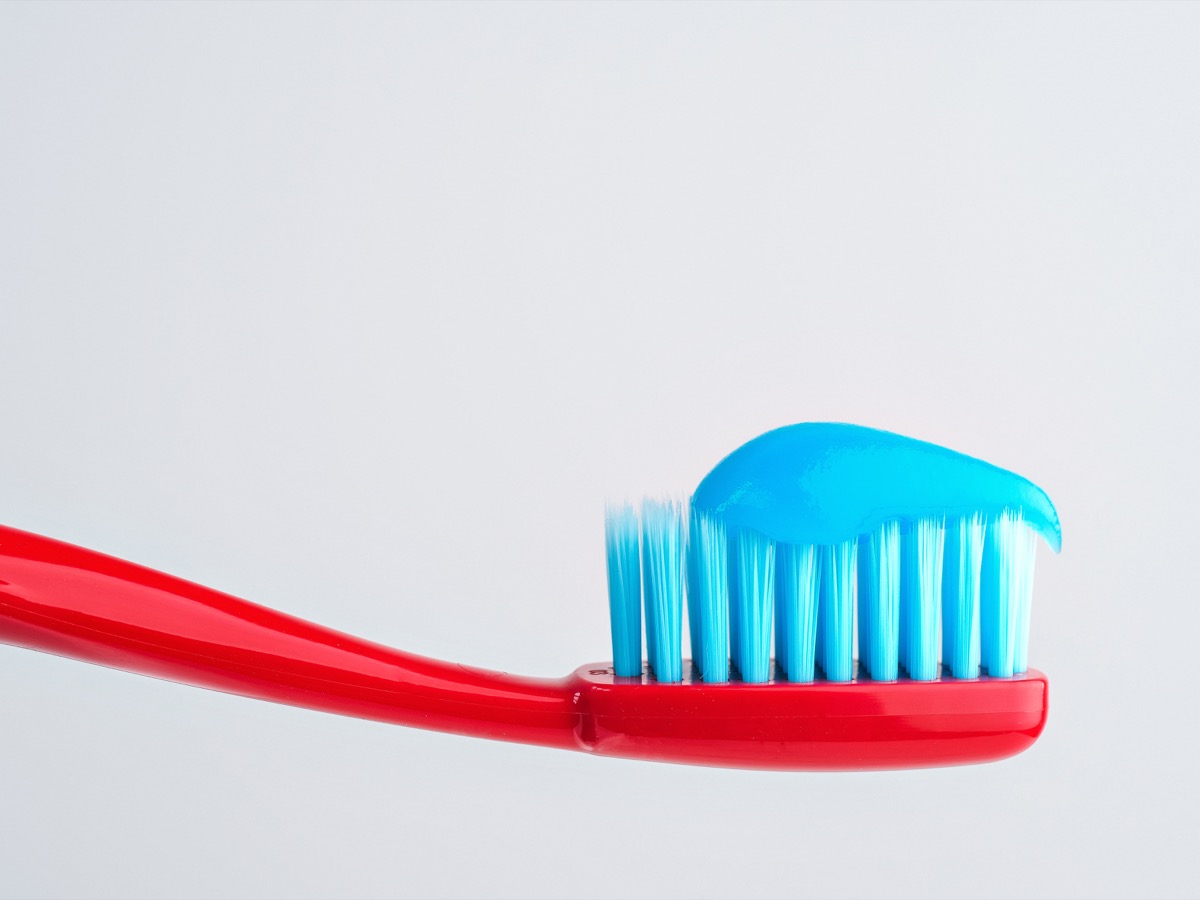
Listen to your dentist when they tell you to brush your teeth twice a day. Not only will this prevent cavities and tooth decay, but 2019 research published in the journal Science Advances shows that it also destroys bacteria that can migrate to the brain and cause Alzheimer’s.
39
Stop rinsing after you brush your teeth.
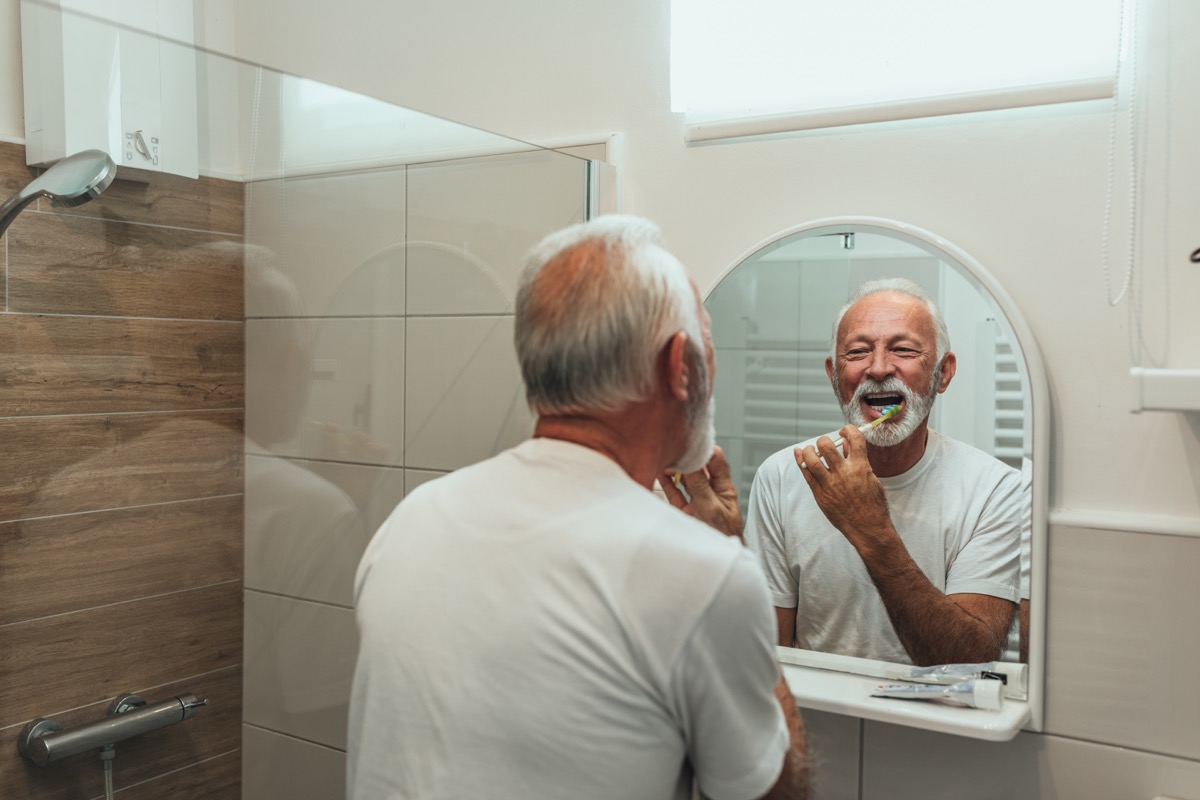
When you do brush, avoid rinsing your mouth to get rid of that toothpaste residue. As the Queensland Government in Australia explains on their Department of Health website, this practice strips the mouth and teeth of the protective fluoride layer that toothpaste provides, which in turn invites bacteria in.
40
Soak your toothbrush in mouthwash every night.
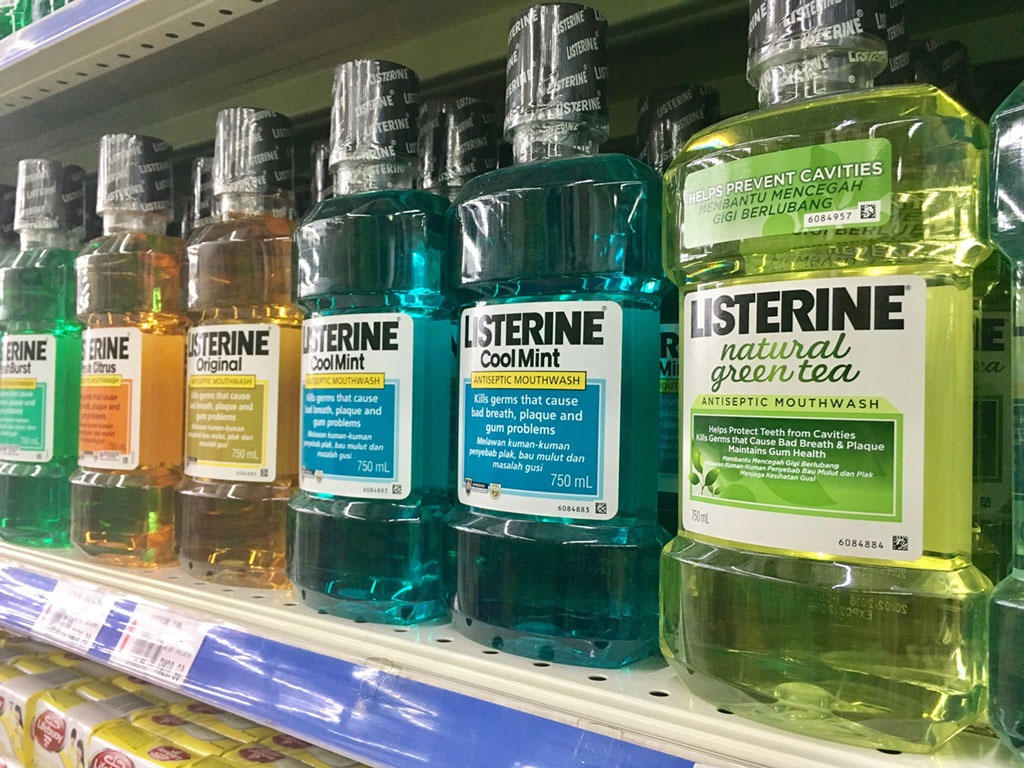
According to dental hygiene pratice Dynamic Dental, using this antiseptic product as a disinfectant agent is a surefire way to prevent the spread of germs via your toothbrush, particularly during cold and flu season.
41
Limit your soda intake.
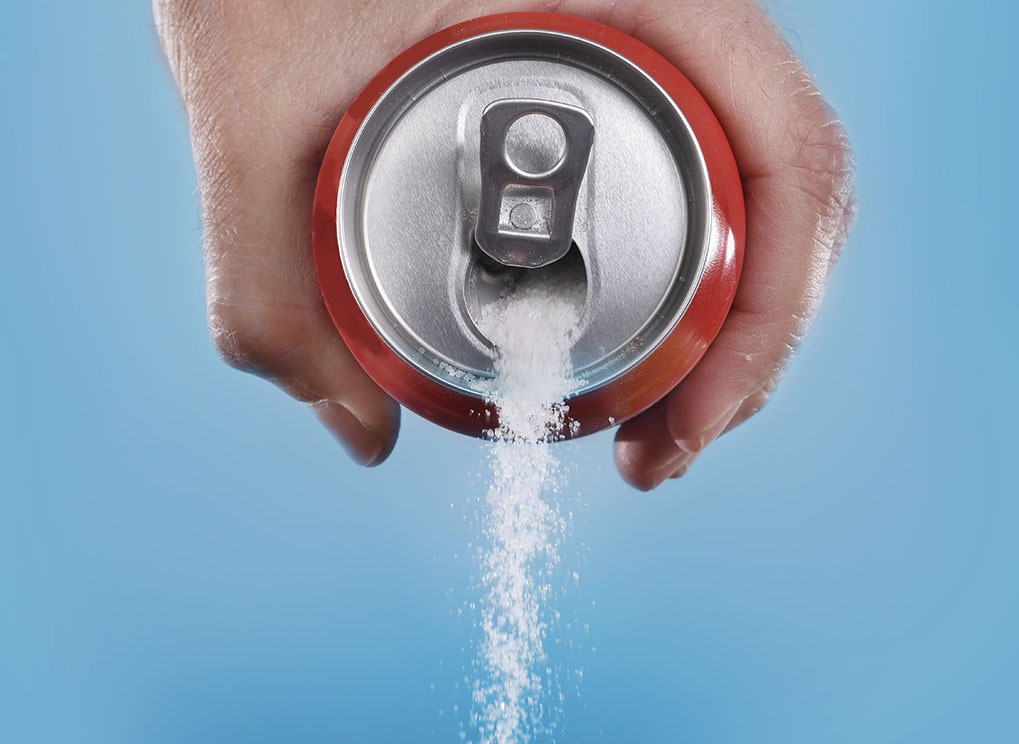
Aside from providing you with more than your fair share of empty calories, soft drinks contain high amounts of fructose, which researchers have found may weaken your bones and contribute to osteoporosis, according to a 2018 study published in the journal Missouri Medicine.
42
Keep healthy snacks with you wherever you go.
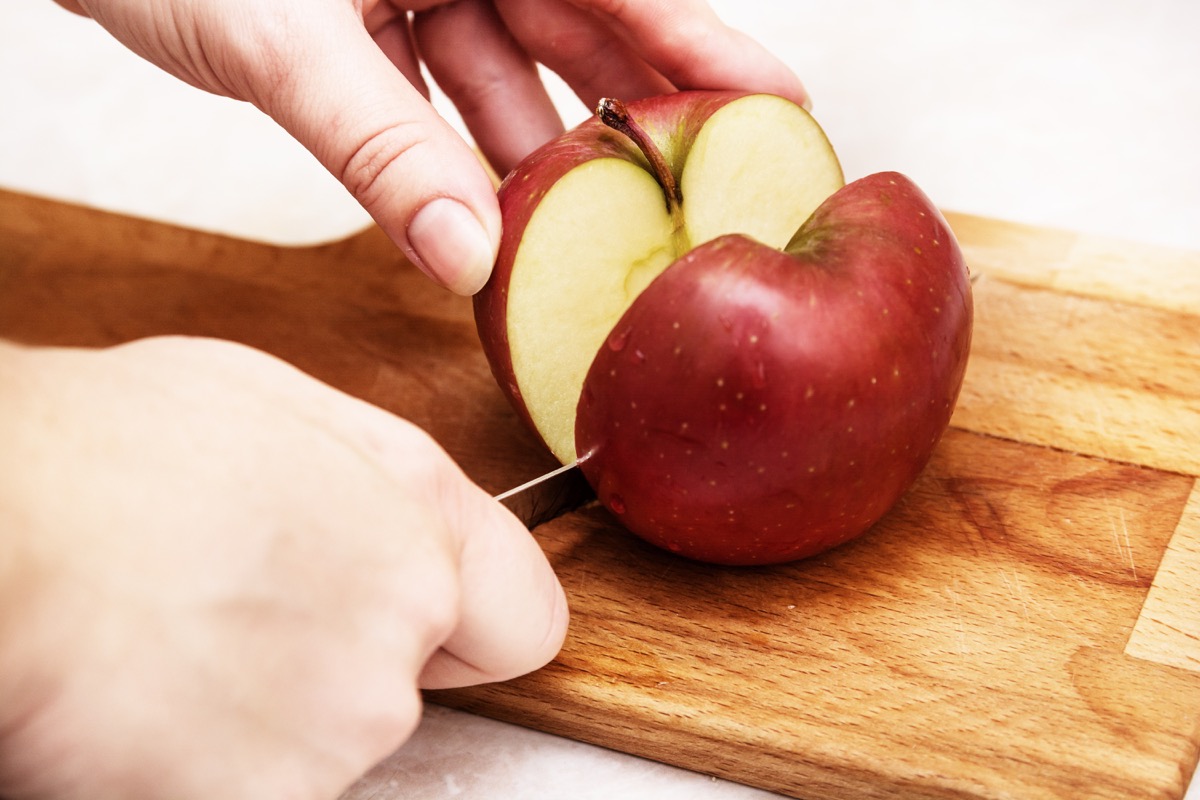
You never know when you’re going to end up in a situation where you’re starving and the only thing available is sticky donuts and other sweet treats. One way to avoid succumbing to those sugary offerings is having healthier snacks with you. We recommend keeping, at the very least, a bag of nuts, a protein bar, or a piece of fruit on your person at any given time.
43
Dilute your juice.
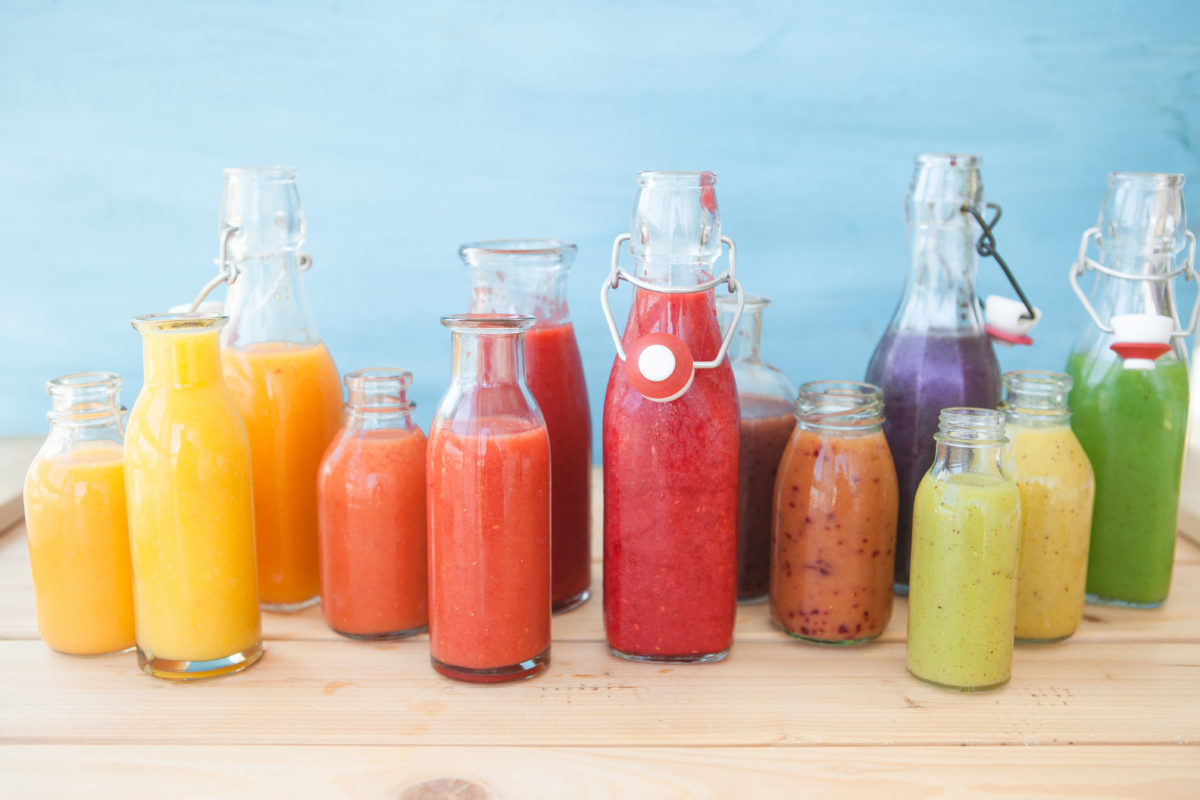
You don’t have to give up your favorite fruit juices entirely just to be healthy. Instead, you can halve the number of calories you’re consuming just by diluting your drink with water. It’s the same flavor with half the sugar!
44
Eat more peanut butter.
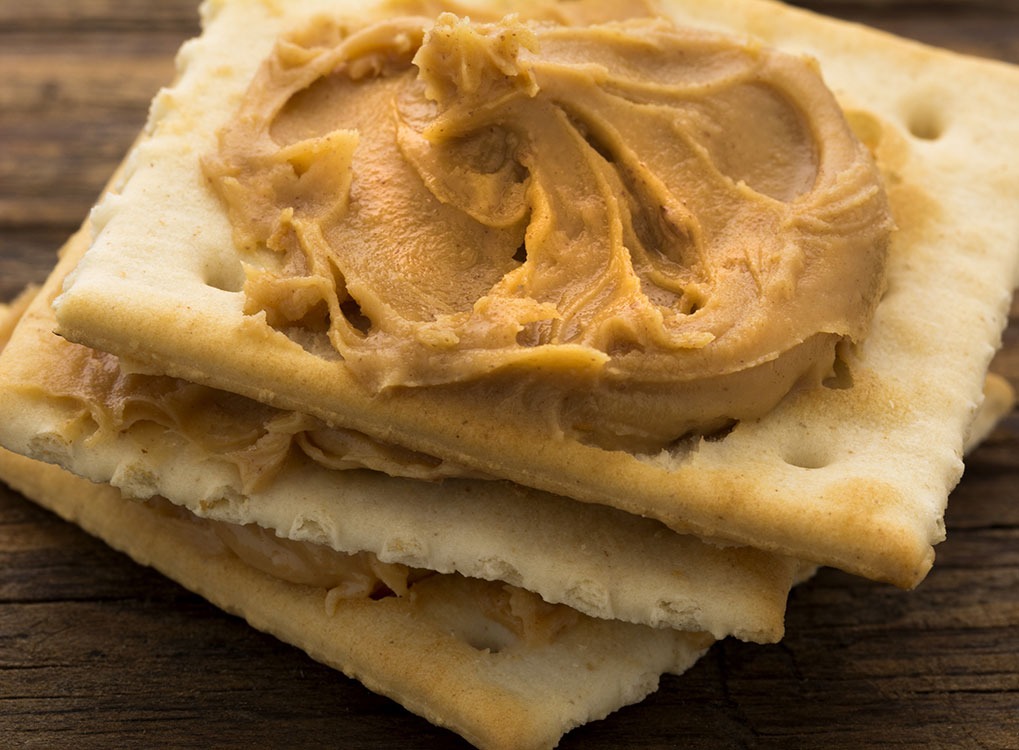
Peanut butter contains ample monosaturated fat, which 2018 research from the Harvard T.H. Chan School of Public Health has shown can lower heart disease risk. Plus, it’s filling, which means you can slap in on a piece of toast for a satiating afternoon snack.
45
Stop skipping breakfast.
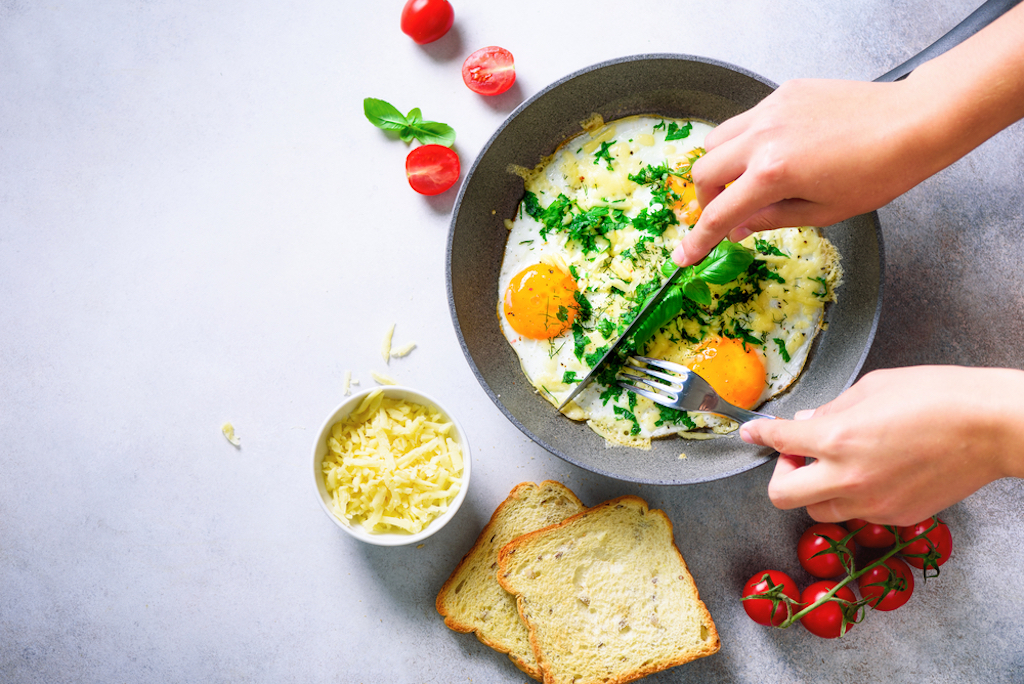
Breakfast is one of the most important meals when it comes to losing weight and keeping it off. One oft-cited 2002 report published in the journal Obesity Research noted that, among nearly 3,000 subjects who were able to lose at least 30 pounds and keep it off for at least a year, 78 percent reported eating breakfast every single day.
46
Keep a food journal.

Though tedious, keeping a food journal, especially at the beginning of a weight loss journey, can prove to be hugely beneficial in the long run. One significant 2008 study from Kaiser Permanente even found that when people wrote down what they ate, they lost twice as much weight as those who didn’t maintain records.
47
Wait 20 minutes before going back for seconds.
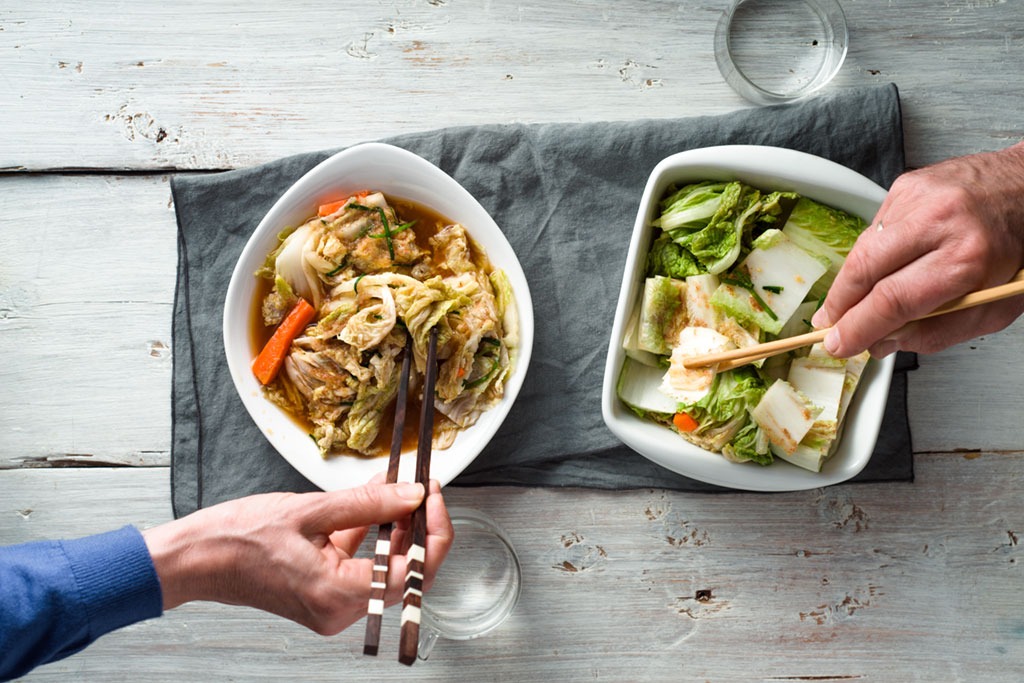
Before you head back to the kitchen to grab a post-dinner snack, give yourself 20 minutes to digest. That’s how long it takes for your body to realize it’s full, according to Harvard Medical School.
48
Ask for an extra empty box when you order takeout.
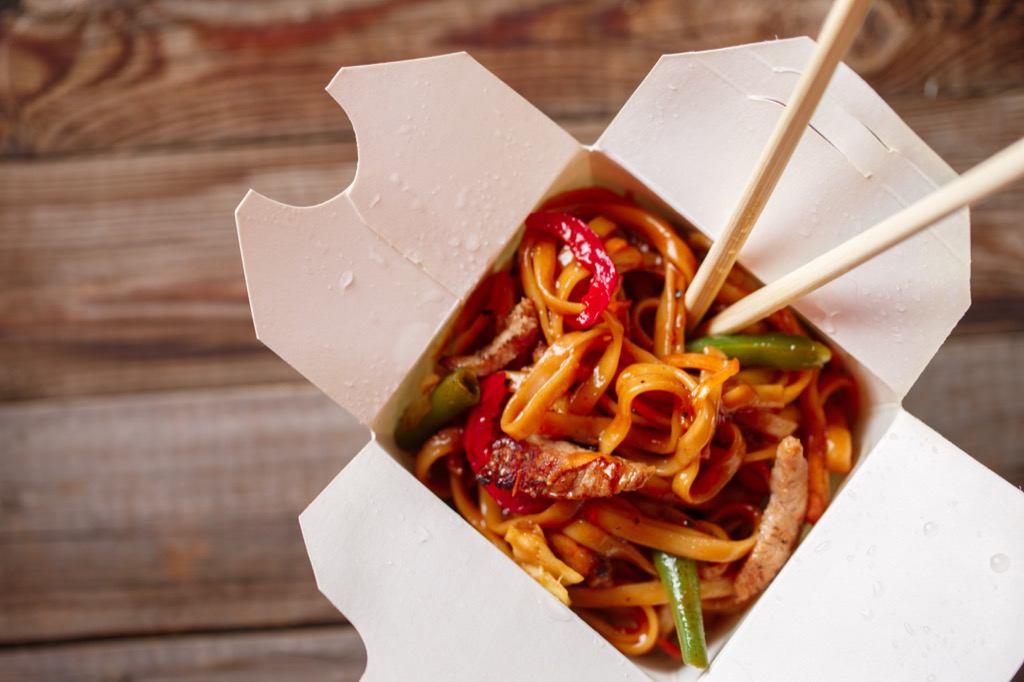
Restaurant portions, especially in America, have become notoriously larger than they need to be. Therefore, you should make it a habit to put half of your meal in a separate box before you start to dig in. This ensures that you won’t overeat just because there is food available. Plus, it saves money by turning one meal into two!
49
Mentally binge before you actually do it.

This might sound weird, but hear us out: One 2010 study published in the journal Science found that people who imagined chowing down on their coveted cheat food subsequently ate less of it than those who didn’t take time to envision it. The imagination is a powerful thing!
50
Keep your dinners light.

You’re only going to weigh yourself down—literally—by eating a heavy dinner of steak and potatoes right before bed. After all, the last thing your body wants to do while it sleeps is digest food.
51
Keep your cholesterol at bay.
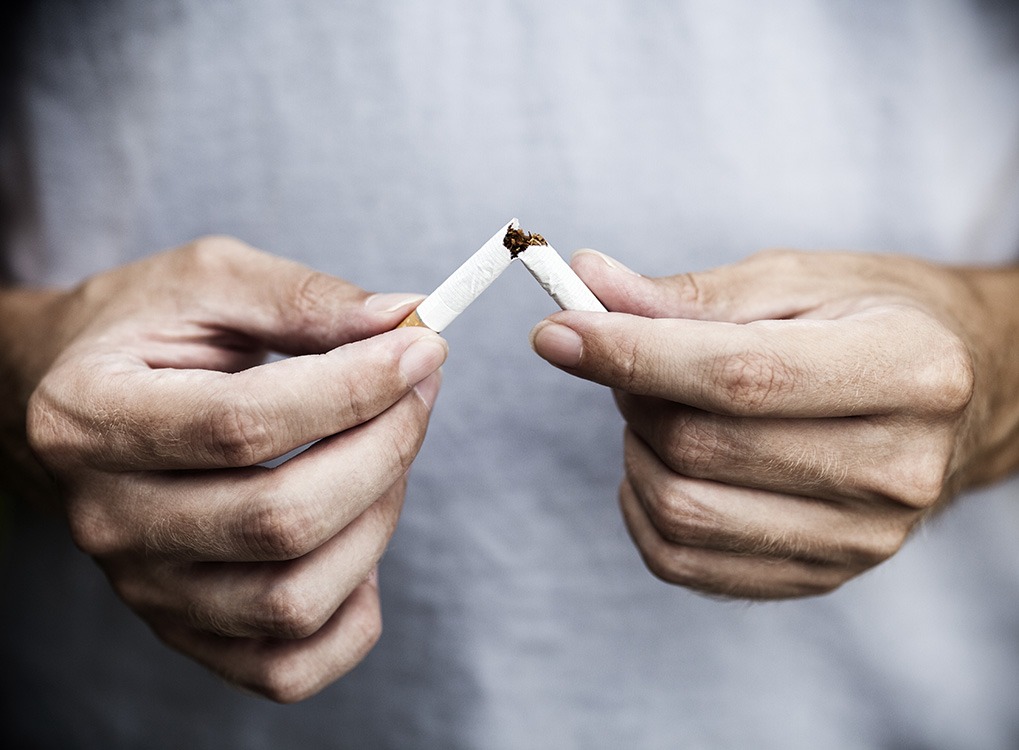
Since men tend to have higher levels of cholesterol in their bodies, they also then tend to be at a higher risk of developing coronary artery disease, a heart disease that occurs when the coronary arteries become narrowed or blocked. To ensure that your cholesterol levels remain healthy, try reducing the amount of saturated fat in your diet, losing excess weight, exercising on a frequent basis, and curbing your smoking habit (if you have one), as cigarette smoking lowers the amount of good cholesterol in your body, according to the U.S. National Library of Medicine.
52
Take frequent breaks from sitting.
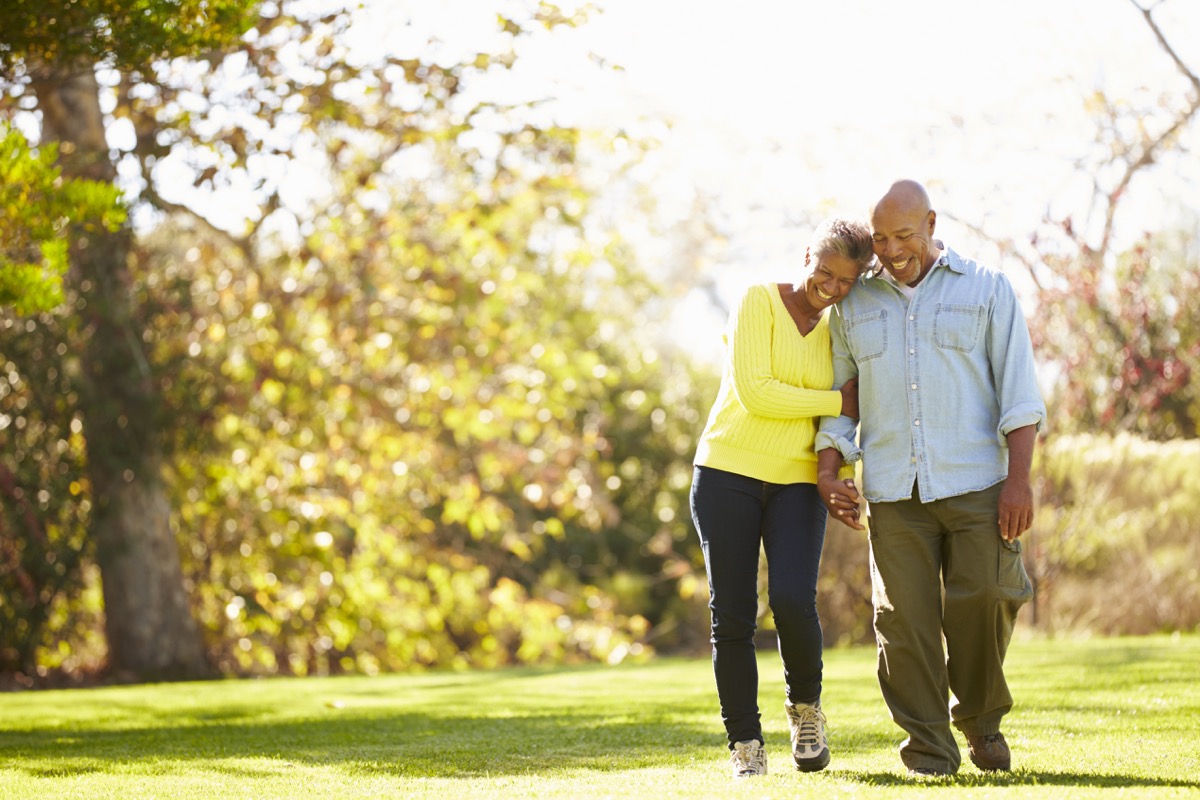
Spending long periods of time sitting can be incredibly harmful to every aspect of your overall health. From the loss of blood flow to your extremities that can cause blood clots to a compressed abdomen that can lead to digestive issues, there are numerous health risks that can be avoided by simply taking a few minutes to walk outside or even around the block.
53
Test your lung function with a candle.

Here’s one age-old trick for testing your lung function: Hold a lit candle (or match) 6 inches from your face, open your mouth wide, and take a deep breath. Try to blow out the candle without pursing your lips. If you can extinguish the flame, your lungs are likely functioning normally.
54
Do a gut check.
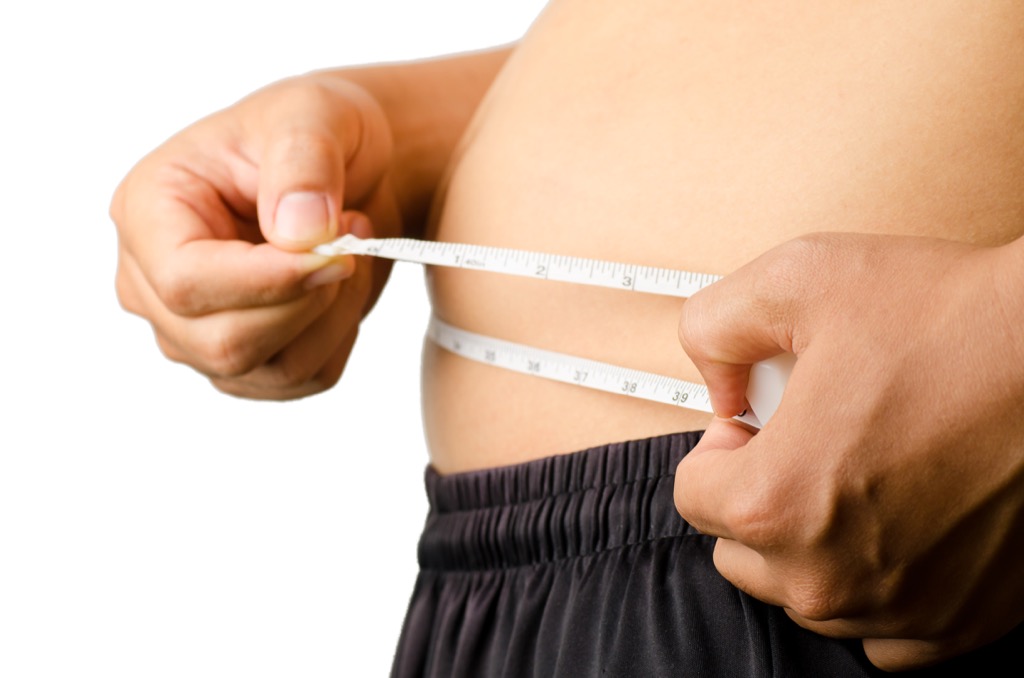
A 2018 study published in the European Journal of Heart Failure found that “central obesity” (better known as a potbelly) raises your heart disease risk. To check your belly, use a measuring tape to do a reading on your waist at the midpoint between your bottom rib and hip bone. Then measure your hips at their widest point. Divide your waist size by your hip size, and you’ve got your waist-to-hip ratio. If that ratio is .90 or less, and your waist is less than 40 inches, you’ve just eliminated one key risk factor for heart disease.
55
Check your hearing.

In a quiet room, extend your arm straight out to the side and lightly rub your thumb and forefinger together. Slowly move the rubbing fingers toward one ear, taking note of how far away they are when the sound becomes audible. Repeat on the other side. Under age 60, a person with normal hearing should be able to make out the sound at 6 to 8 inches. If you’re under age 60 and are struggling to complete this test, it might be time to see a medical professional, according to the 2008 book Live Now, Age Later by Isadore Rosenfeld, MD.
56
Discover your true age.
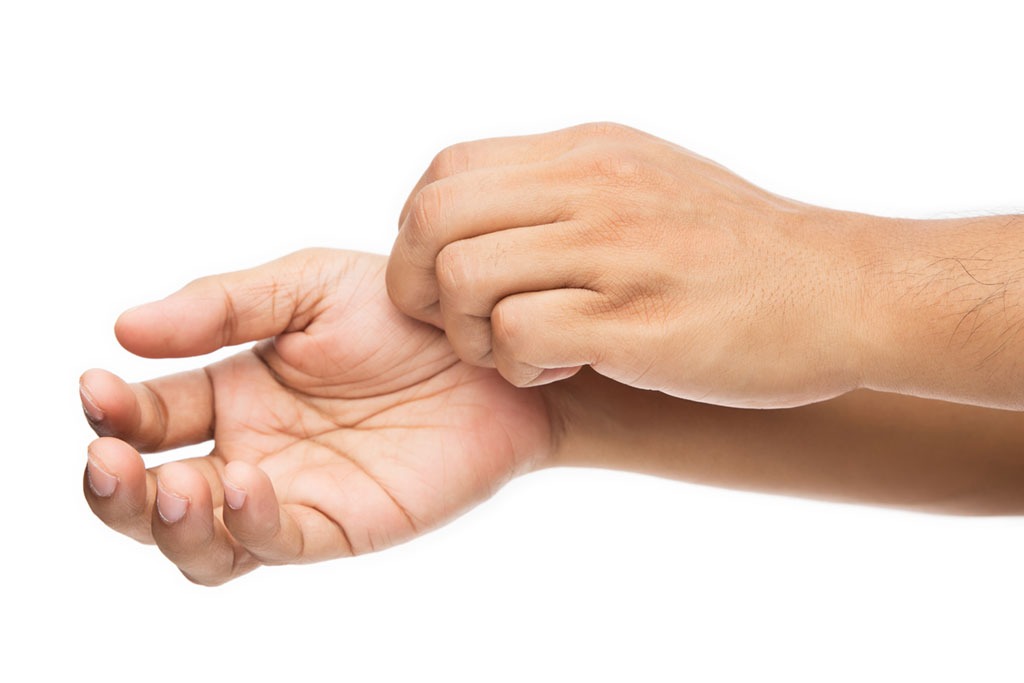
This skin elasticity test will measure your functional age (how old your body acts), as opposed to your chronological one: Pinch the skin on the back of your hand between your thumb and forefinger for five seconds and then time how long it takes to flatten out completely. For people up to 50 years of age, the skin should spring back in about 5 seconds; up to age 60, 10 to 15 seconds; and up to 70, 35 to 55 seconds.
57
Cook your meals at home.
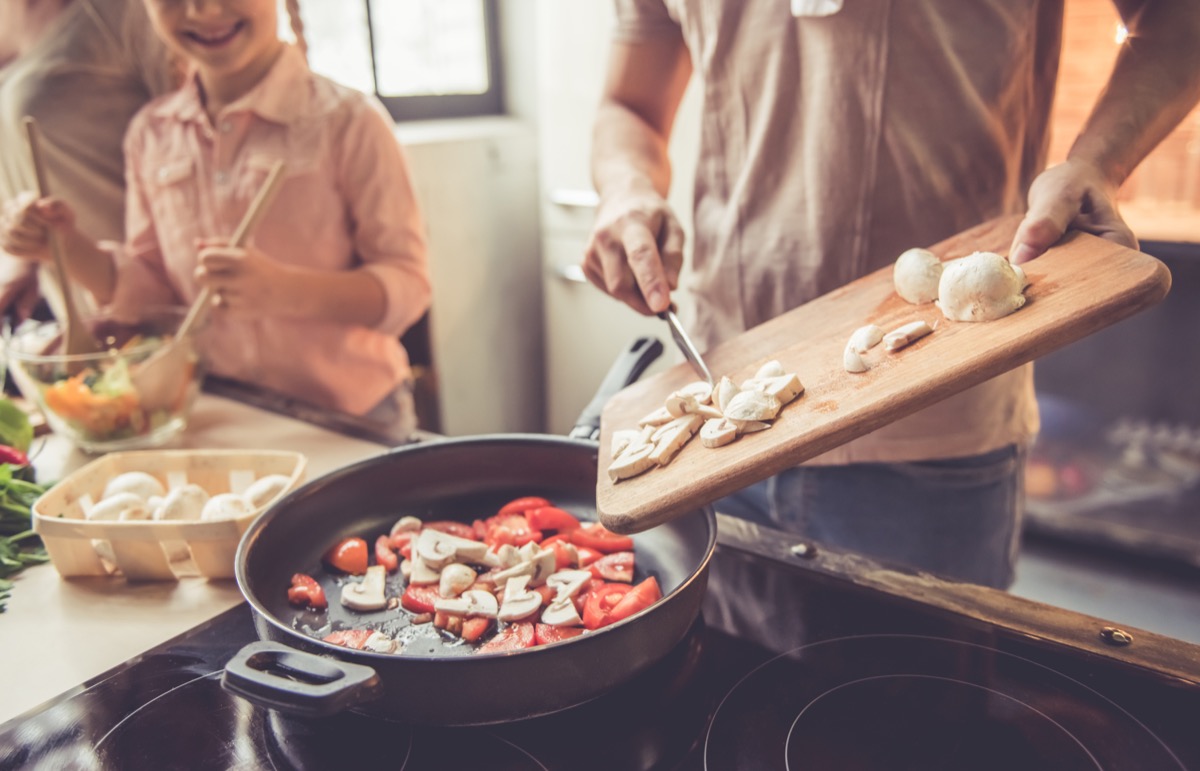
If you want to live a longer and healthier life, stop eating so much takeout. One 2012 study published in the Public Health Nutrition journal found that people who cook at home up to five times a week were 47 percent more likely to still be alive 10 years later, as compared to those who ate more takeout meals.
58
Get your vision checked to reduce eye strain.
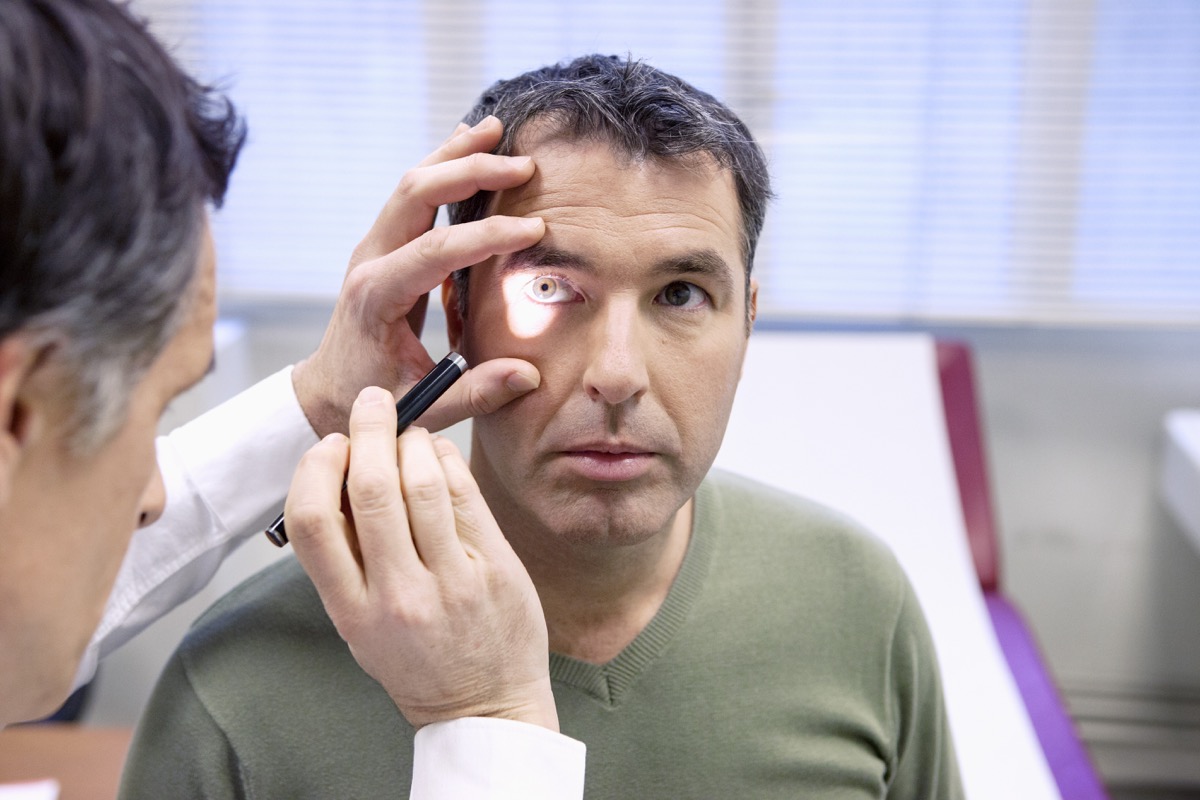
If you’re over 40 and get headaches or eye strain from reading, you may have presbyopia: the loss of the ability to focus sharply on things up close. To tell if you do, open a phone book and choose some numbers. (If you normally wear glasses, keep them on.) Move the book away until you can focus on the numbers. If you must extend your arms fully or bend them only slightly to see clearly, you’re probably ready for reading glasses or bifocals. If that’s the case, see an optometrist or ophthalmologist for a more precise test.
59
Find ways to curb your stress.

If we had to give only one piece of health advice to men, it would be “eliminate the stress in your life.” Chronic stress in men has been linked to everything from allergies to heart disease. Experts at The American Institute of Stress say that up to 90 percent of visits to physicians may be for stress-related disorders. So, to combat this serious health risk, start finding ways to actively curb your stress, from spending more time chatting with friends and family to cutting down on your caffeine intake.
60
Skip the second cup of coffee.
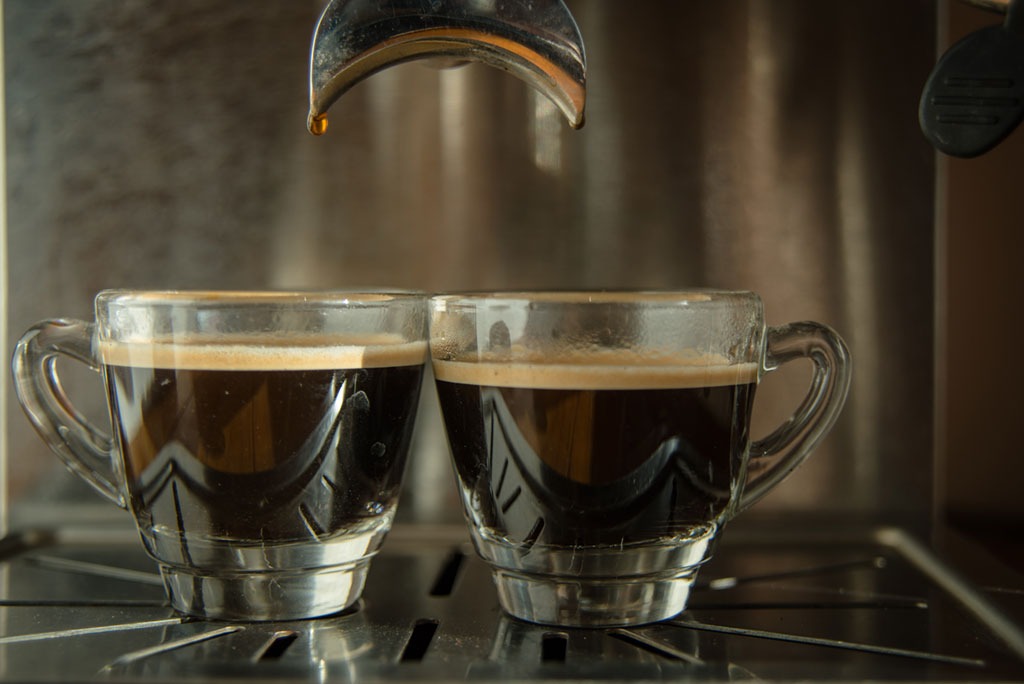
The caffeine in two cups of coffee adds 16 beats a minute to your heart rate and makes you more irritable and anxious, according to a 2015 study published in the Journal of Psychopharmacology. If you’re consuming more than 400 milligrams a day (around four cups of coffee), then chances are that your irritability will be tested.
61
Sleep naked.
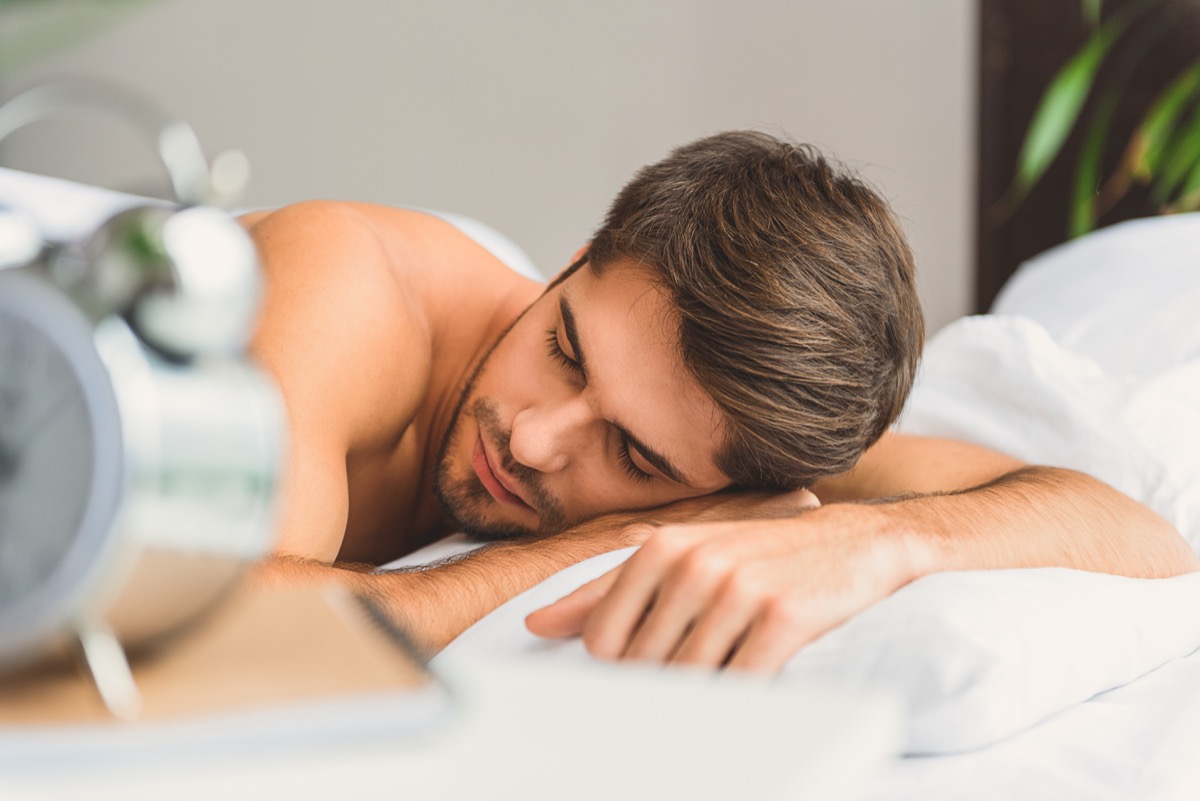
According to Sleep Help, sleeping naked can improve your ability to have restful sleep and, in general, your overall health. This is because when you sleep naked, your body’s production of melatonin, which makes you sleepy and decreases your body temperature, isn’t hindered by the presence of layers of clothing. Aside from ensuring that you have a truly restful sleep, keeping cool at night reduces the body’s level of cortisol, a stress hormone that can lead to overeating, diabetes, and disease-causing inflammation.
62
Try kur to maintain a restful sleep.

If you wake up unusually early—say 4 or 5 a.m.—head for the bathroom and dampen a hand towel with cool water. Spend a few minutes lightly wiping your arms, legs, and torso; then go back to bed. The body is very warm when it comes out of REM sleep. Once you have cooled it down and you get back into bed, your body will heat up even more, almost as if it has a slight fever. The result should be a deep, restful sleep. This technique is part of a kur, a relaxation treatment at many European spas.
63
Get an extra hour of sleep.

It provides the energy equivalent of two cups of coffee, but only if you go to bed earlier than usual. Sleeping later doesn’t work because it disturbs your circadian rhythm, making you feel somewhat groggy and out of sorts for the rest of the day, says Rachel Salas, an associate professor of neurology who studies sleep disorders at Johns Hopkins University.
64
Eat more eggs.
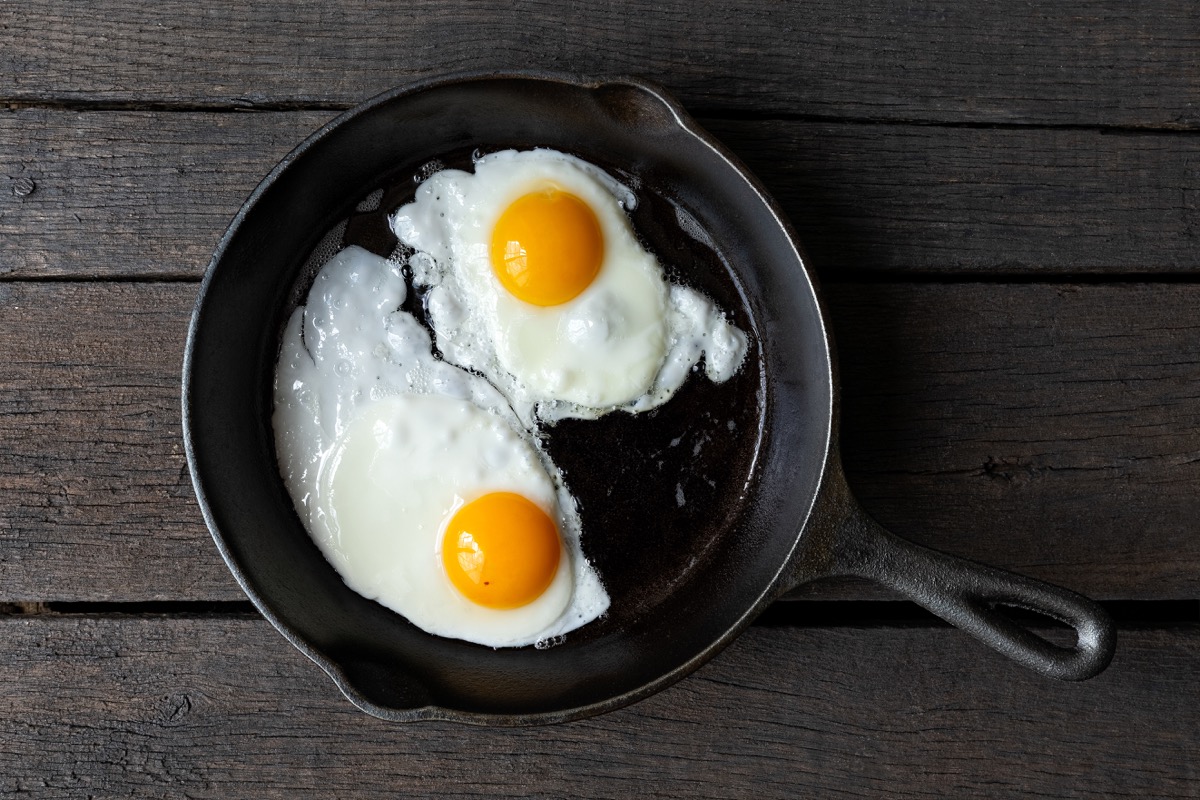
If there’s one breakfast food that you should never shy away from eating more of, it’s eggs. This morning staple is loaded with vitamin D, and studies—including a 2018 study published in PLOS One—have found that people with adequate amounts of vitamin D in their system are less likely to develop type 2 diabetes.
65
Test your pillow’s viability with a shoe.
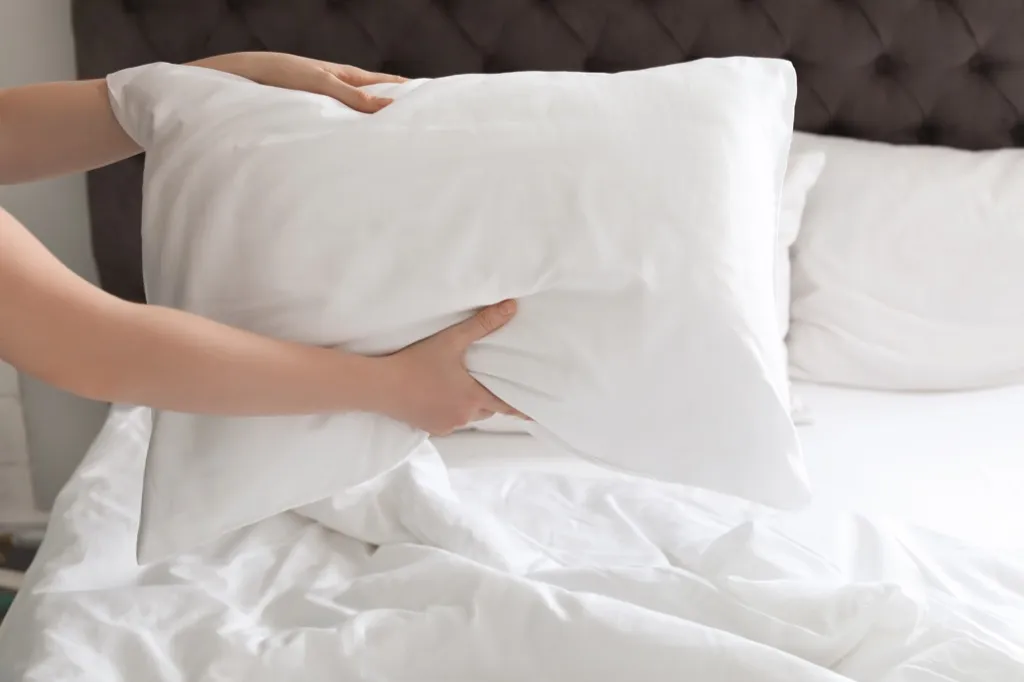
Want to test out whether your pillow is still up to fluff—er, snuff? All you need is a shoe. Simply fold your pillow in half, making sure to squeeze the air out, and place the shoe on top of it (if you’re worried about your shoe transferring dirt, a paperback book will suffice as well). If the pillow remains folded, then it’s time to get a new one; if it springs back at you with full force, then you know that your neck and back are in good hands.
66
Seek help for your sleep apnea.
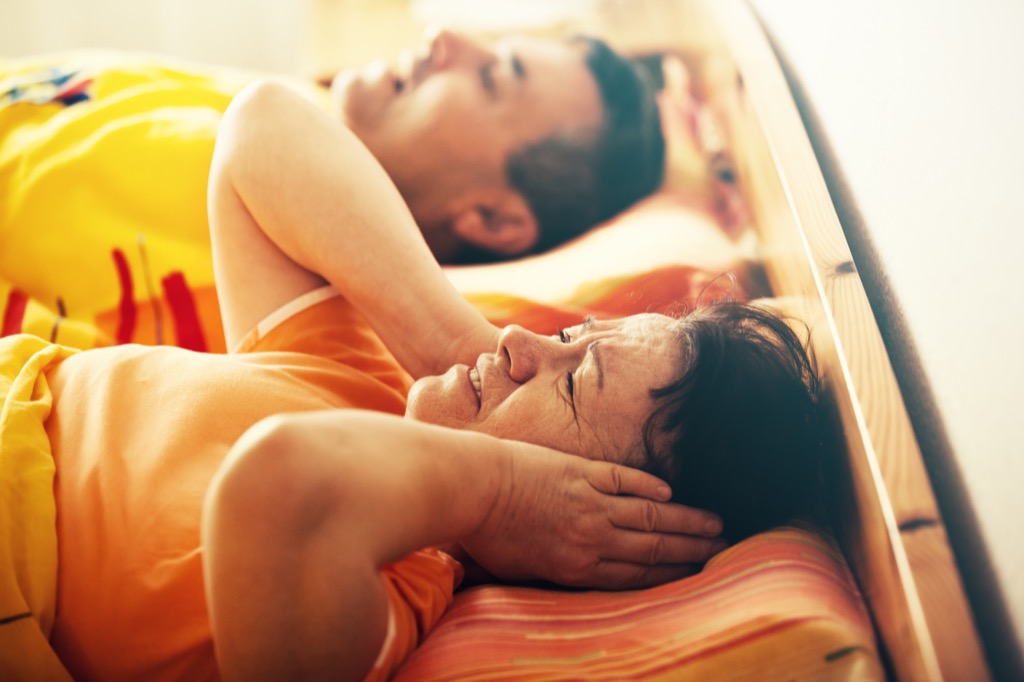
If you tend to snore especially loudly at night, and even gasp for air on occasion, then your simple snoring habit could be sleep apnea. Sleep apnea occurs when the muscles relax in the back of your throat and your airway narrows or closes as you breathe in, making it nearly impossible for you to receive the adequate air and sleep that your body needs.
And, because your body cannot get the proper amount of shut-eye per night, you’re more likely to experience high blood pressure, heart disease, and liver problems. So please, for the sake of your health, seek out medical help to cure your sleep apnea—your health depends on it.
67
Combat your insomnia.
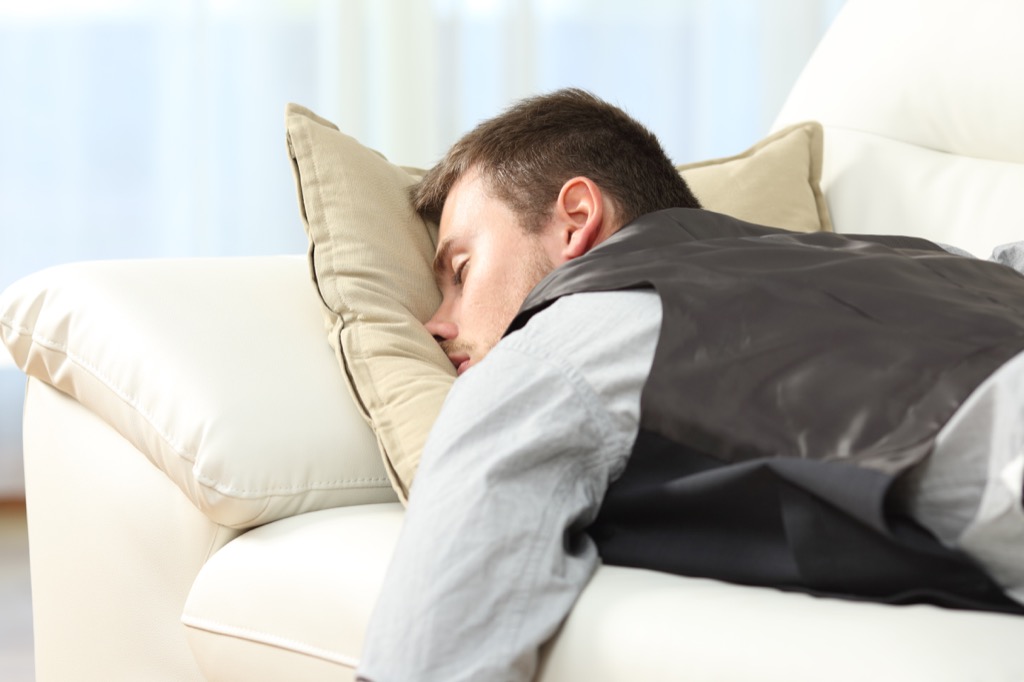
If you’re currently combating insomnia (and it feels like a losing battle), you might need to employ smarter tactics in order to get that precious sleep you need, according to the National Sleep Foundation. For one, you should be finding a way to wind down 30 minutes before your head hits the pillow. This relaxation time could include anything from reading to listening to calming music—though it should not involve any electronic devices, as they only inspire your mind to stay awake.
However, if you’ve relaxed for 30 minutes and still can’t seem to find the sleeping sweet spot, then experts at the National Sleep Foundation actually suggest getting up out of bed and resuming your relaxing activities in another part of your home. “Lying in bed awake can create an unhealthy link between your sleeping environment and wakefulness. Instead, you want your bed to conjure sleepy thoughts and feelings only,” they note.
68
Eat a low-calorie diet.
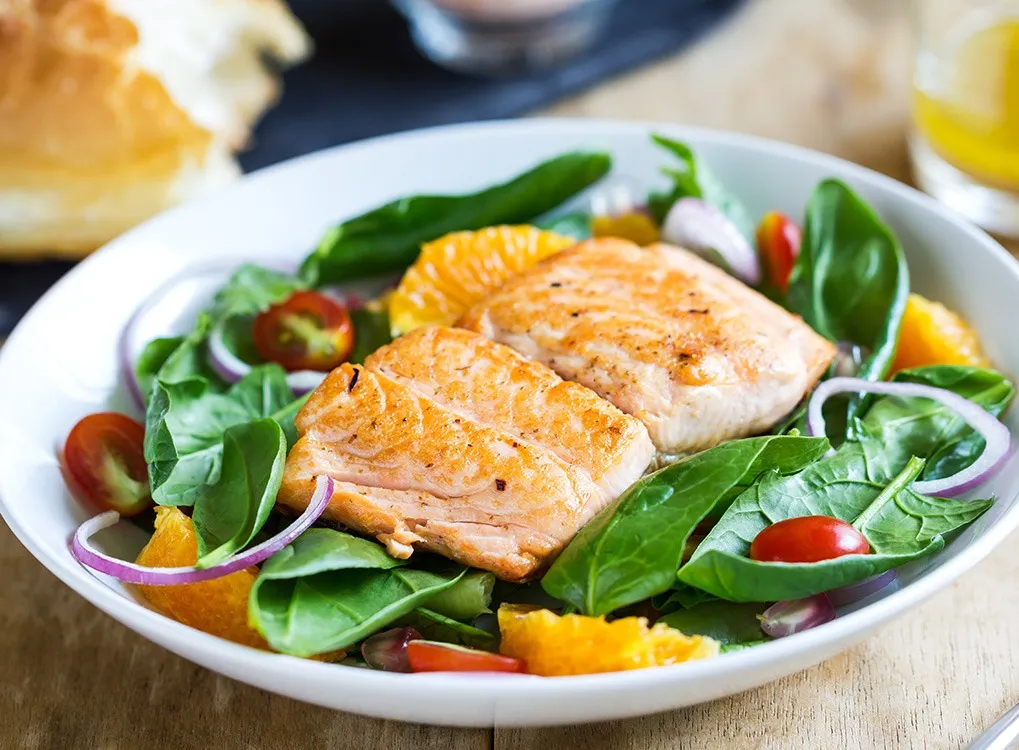
One 2017 study published in The Journals of Gerontology found that participants who stuck to a low-calorie diet for two years only aged 0.11 years each year in the study, while their counterparts who stuck to a normal diet aged 0.71 years each year, thus demonstrating the power of a restricted diet on the aging process.
69
Keep your TV binges to a minimum.

Your affinity for late-night ESPN recaps could be detrimental to your health, according to 2012 research published in the British Journal of Sports Medicine. That’s right—every hour of television you watch after age 25 cuts your lifespan by approximately 22 minutes. Additionally, researchers discovered that people who spent an average of six hours a day tuned into their televisions died nearly five years before those who didn’t watch any television at all.
70
Eat more watermelon to protect your prostate.
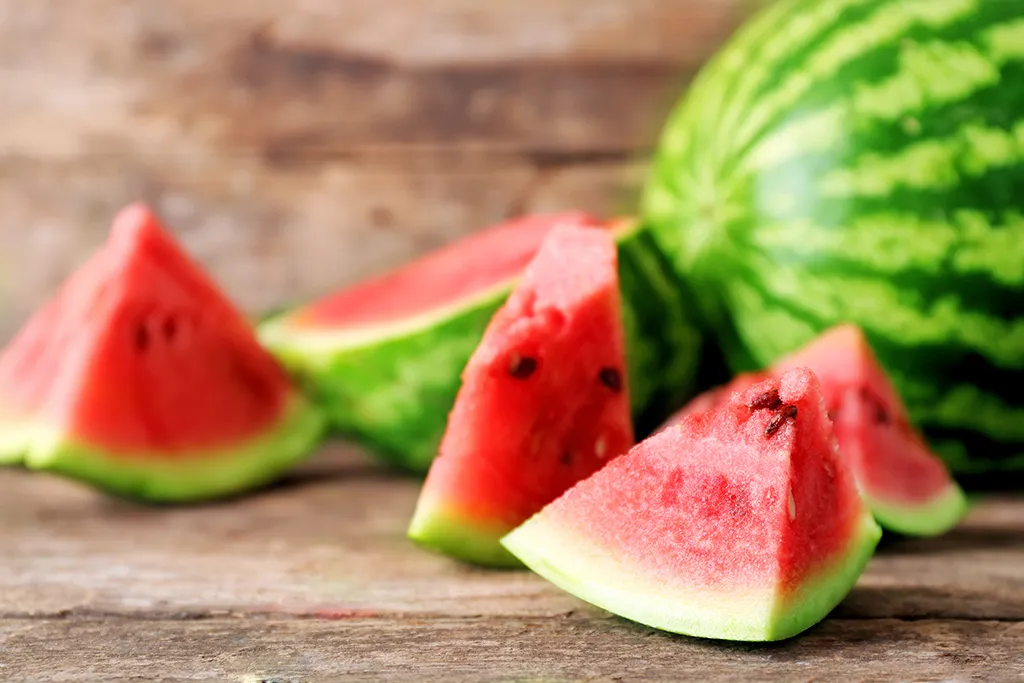
Like tomatoes, watermelon contains lycopene, a phytochemical that may reduce your prostate cancer risk, according to research analysis conducted by the National Cancer Institute. After combing through decades-worth of research on the association between lycopene-rich foods and prostate cancer risk, the researchers at the National Cancer Institute were able to definitively say that 95 percent of research points to the same conclusion—that consuming lycopene on a consistent basis can help prevent prostate cancer. (Fun fact: A single one-inch slice of watermelon has as much lycopene as four tomatoes).
71
Cut back on the bacon.
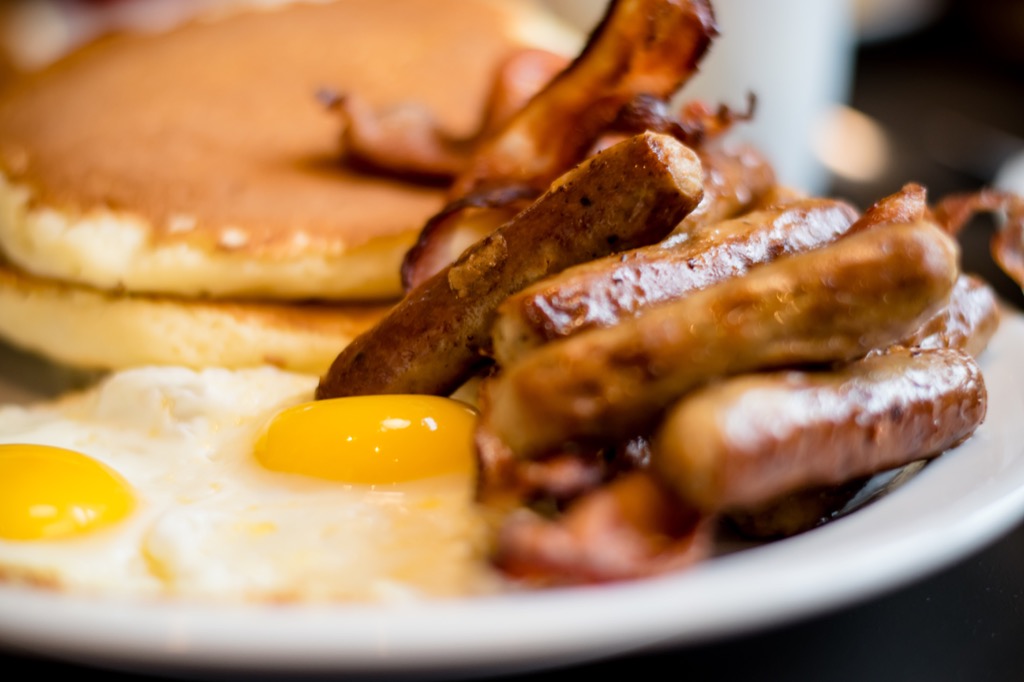
Though processed meats like sausage and bacon are decidedly delicious ways to add protein to your diet, a 2013 study published in the journal BMC Medicine concluded that processed meats are linked to a higher risk of heart disease and cancer. So, like most anything else, it’s best to consume these processed meats in moderation.
72
Eat more fish.
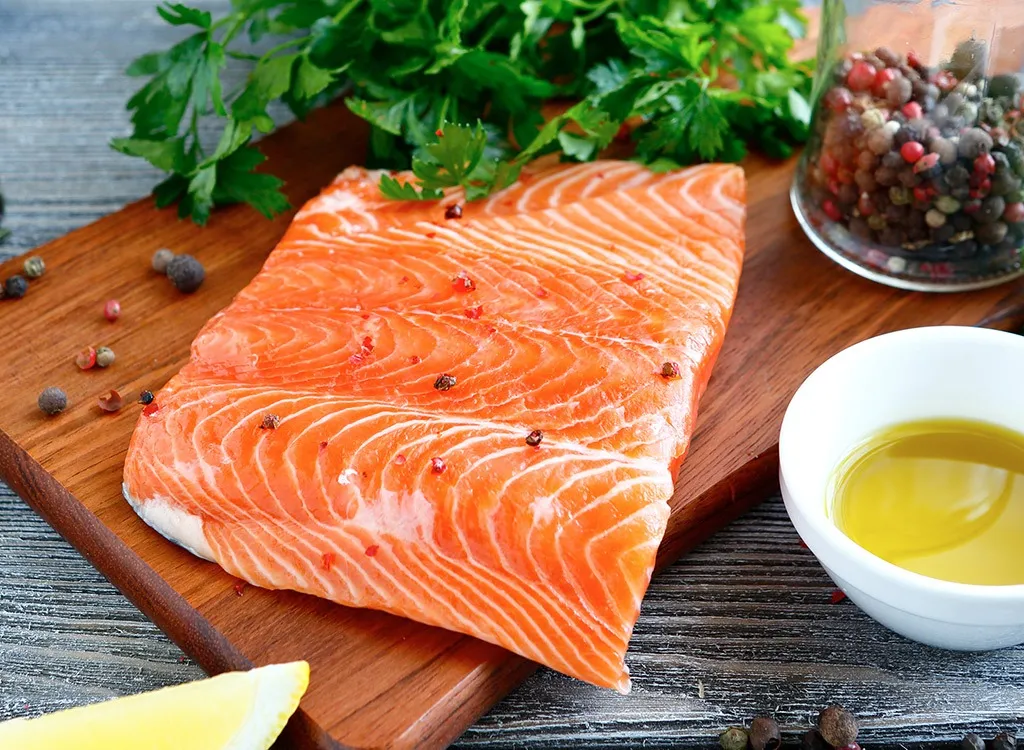
Two servings a week of fish rich in healthy omega-3 fatty acids, like salmon, mackerel, herring, lake trout, sardines, and albacore tuna, can have a positive effect on the health of your heart, according to the American Heart Association. By “decreasing the risk of abnormal heart rhythms that can lead to sudden death, decreasing triglyceride levels and slowing the growth of fatty deposits that clog arteries,” fish can truly help you protect your ticker in the long run.
73
Eat blueberries to protect your erection.
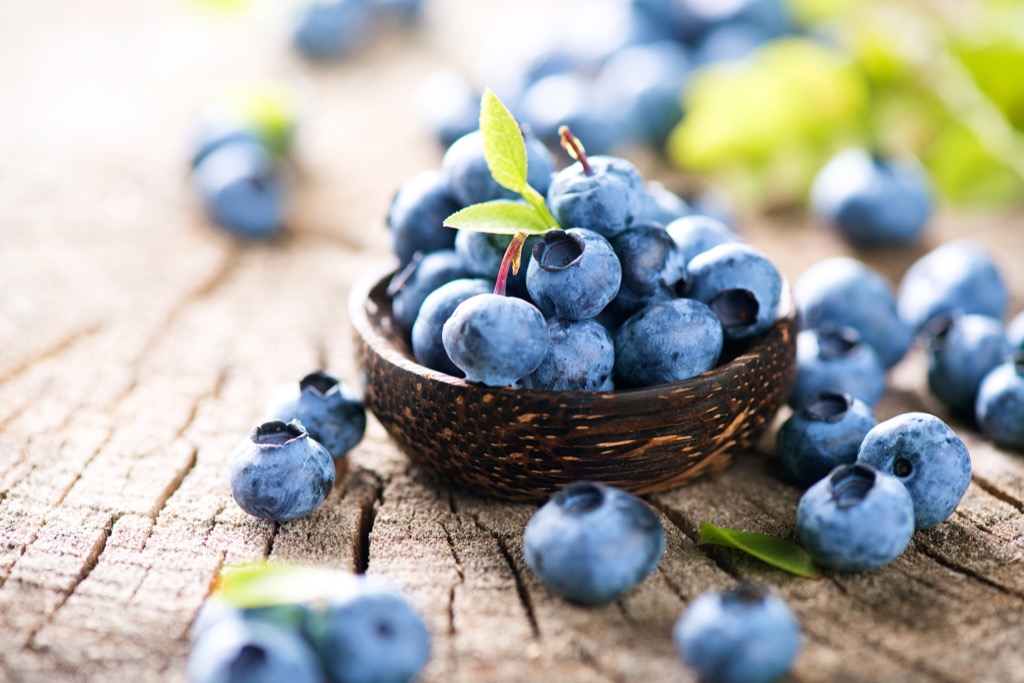
Mother Nature’s original blue potency capsule is the blueberry. They’re packed with compounds that help relax your blood vessels, improving circulation, says Mary Ellen Camire, PhD, a professor of food science at the University of Maine. Plus, “they’re loaded with soluble fiber, which helps push excess cholesterol through your digestive system before it can be broken down, absorbed, and deposited along the walls of your arteries,” she explains. Lower cholesterol and better blood flow mean more blood to the penis to ensure maximum potency and performance as you grow older. Eat blueberries fresh or in a smoothie at least three times a week.
74
Have one or two cocktails per day.
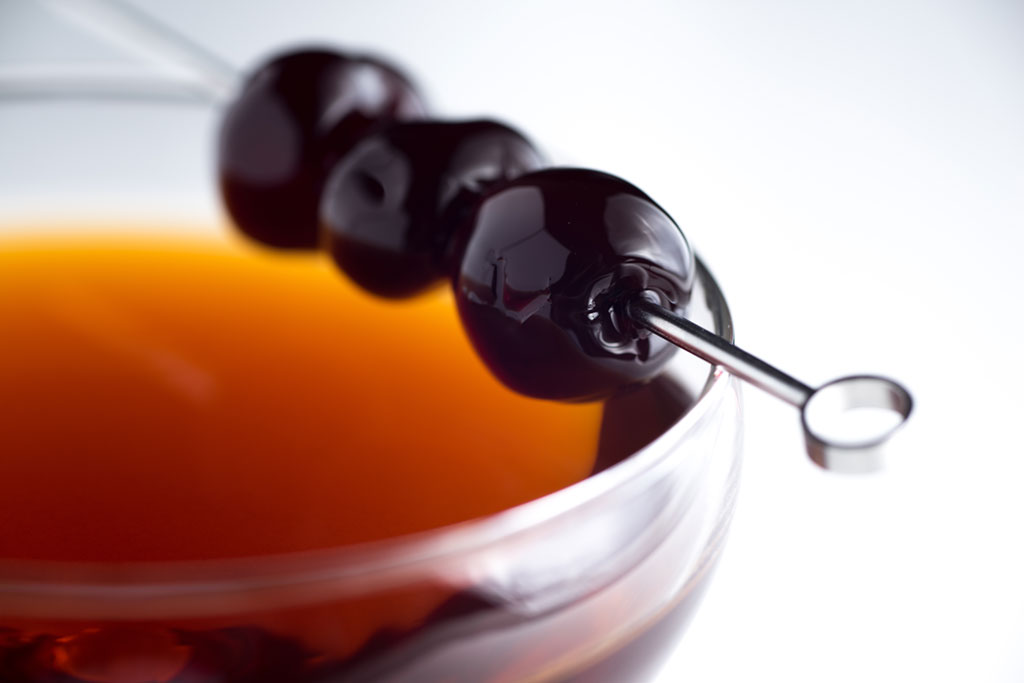
According to significant 2001 research published in the Postgraduate Medical Journal, having one to two drinks per day can ward off heart disease in two ways—first, by modestly boosting blood levels of HDL, the cholesterol that clears arteries of fatty deposits; and second, by making platelets, or clot-forming cells, less likely to stick together and obstruct blood flow. Findings from more than 30 long-term studies suggest that those who imbibe within this range reduce their risk of heart attack by 25 to 40 percent when compared with nondrinkers.
75
Consume more nuts.
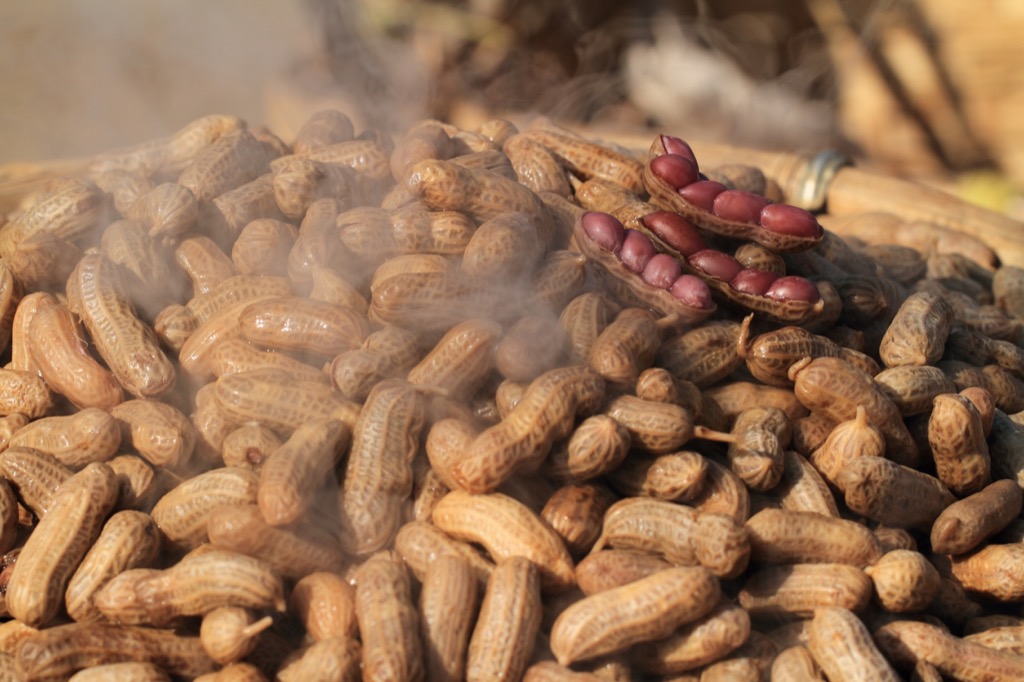
A 2019 study published in Circulation Research, an American Heart Association journal, reveals that people with type 2 diabetes who eat five servings of nuts per week decreased their risk of cardiovascular disease by at least 17 percent. Eating vitamin E-rich nuts could also prevent heart disease in people without diabetes.
76
Become a yogi.
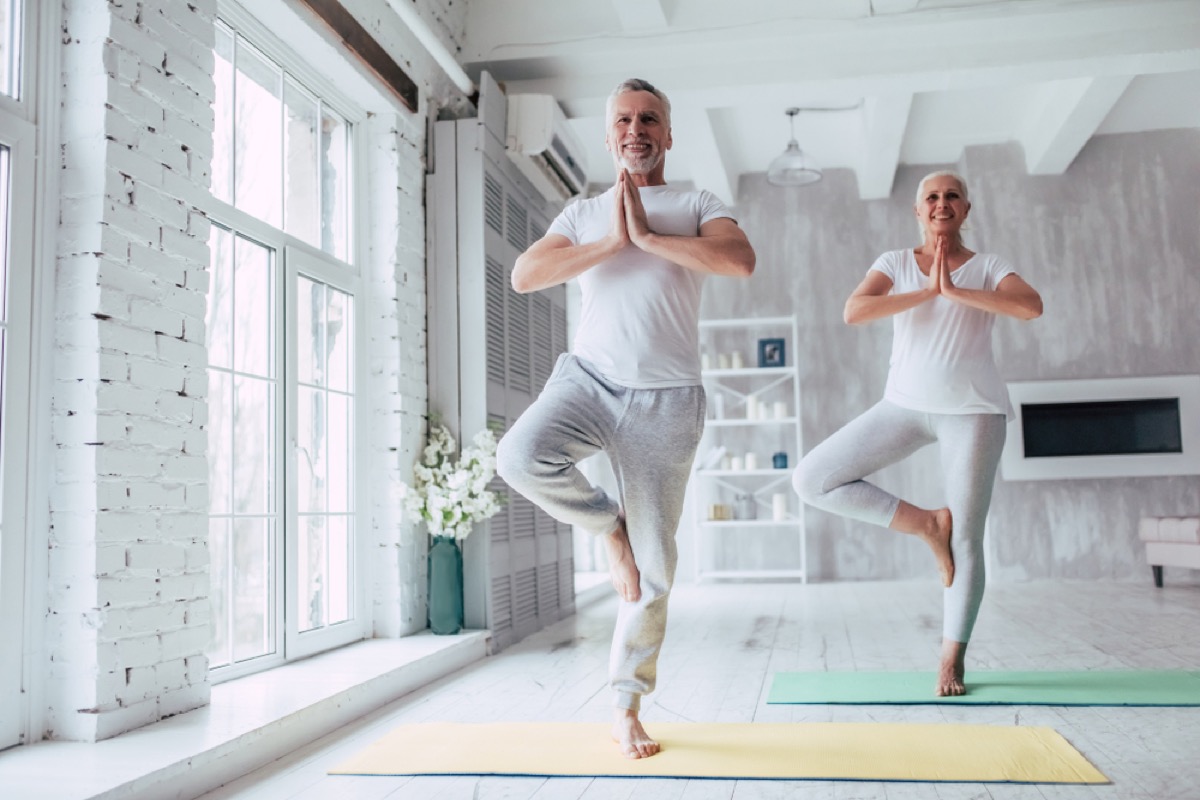
Gentleman, it’s time to get out your yoga mats. That’s right—according to the American Osteopathic Association, going to a yoga class a few times a week has both mental and physical health benefits that range from improved respiration, cardio health, and a balanced metabolism to increased self-awareness and improved stress management. And there are plenty of online yoga classes you can take part in while social distancing.
77
Choose the right popcorn.
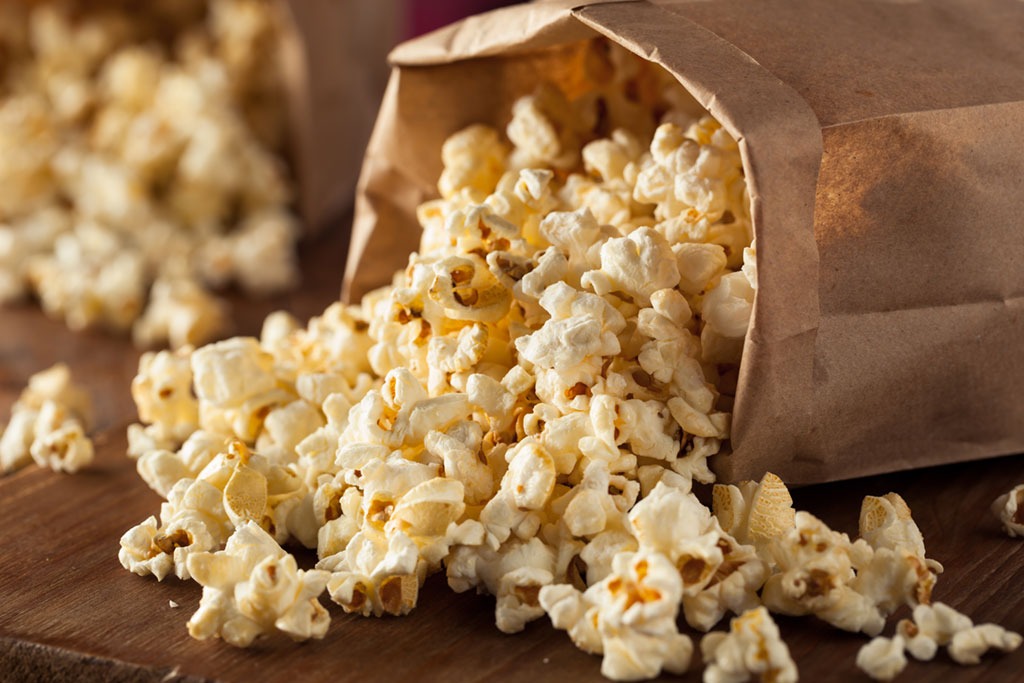
Low-fat microwave popcorn has two-thirds fewer calories than the regular variety. Not only that, but according to a 2012 study published in the Nutrition Journal, this healthier snack alternative was actually proven to be more satiating when compared to the more unhealthy snack alternative of potato chips. So, in short, not only will you feel more satisfied after finishing your bag of low-fat popcorn, but you’ll also be saving on calories and fat in the long run—all without wanting to reach for yet another snack after you’ve downed the bag.
78
Drink skim milk to avoid osteoporosis.

To avoid osteoporosis, make sure you get at least 1,000 milligrams of calcium a day. This amount of calcium, according to a 2016 study published in the journal Calcified Tissue International, can help actively prevent osteoporosis from settling in at an early age. One 8-ounce glass of skim milk delivers about 300 milligrams.
79
Take vitamin C twice a day.
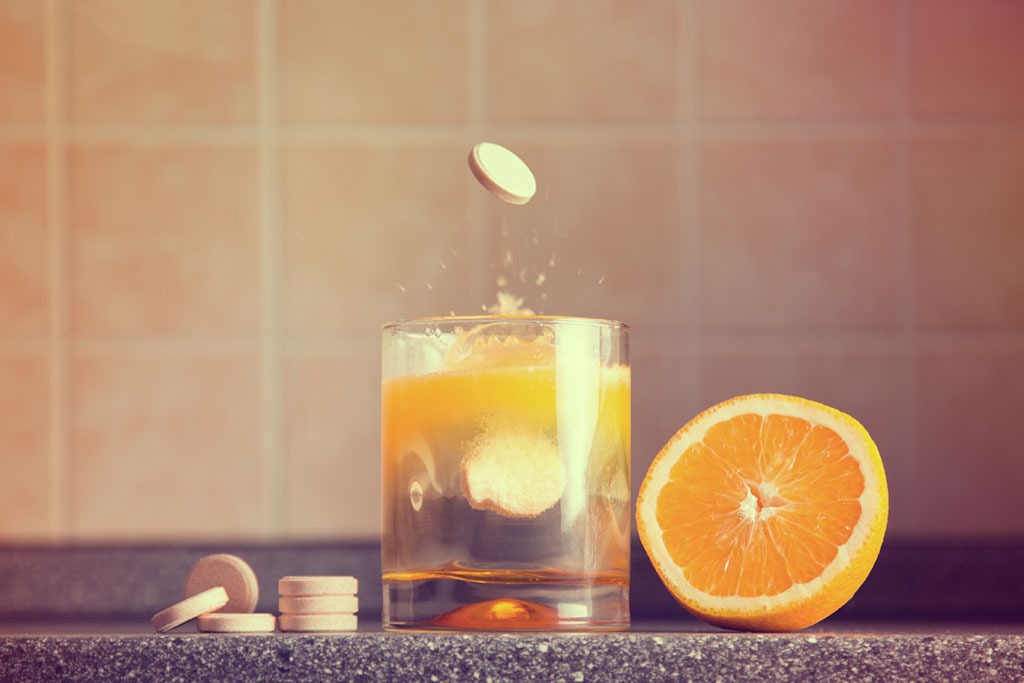
Take two 500-milligram vitamin C pills—one in the morning and one with dinner. This may provide more protection from cancer and heart disease than a single large dose because the vitamin passes through your body within 12 hours of ingestion. So while a single dose taken at breakfast will keep your body’s level of vitamin C elevated till around dinnertime, two smaller doses taken at opposite ends of the day should keep the level up—and provide disease-fighting benefits—around the clock, according to a 2010 study published in the journal Health.
80
Do crunches to ease back pain.

A large percentage of lower back problems can be prevented by building your ab muscles. “The muscles around your spine and in your abdomen contribute to lower back health. Loose or weak abdominal muscles can cause lower back pain by encouraging a forward-leaning posture,” Ronald B. Tolchin, DO, of Baptist Health South Florida, told ShareCare. “Abdominals work in conjunction with back muscles when bending, straightening, or lifting. This is why weak, damaged, or separate abdominal muscles can be associated with lower back pain.”
81
Eat more garlic.
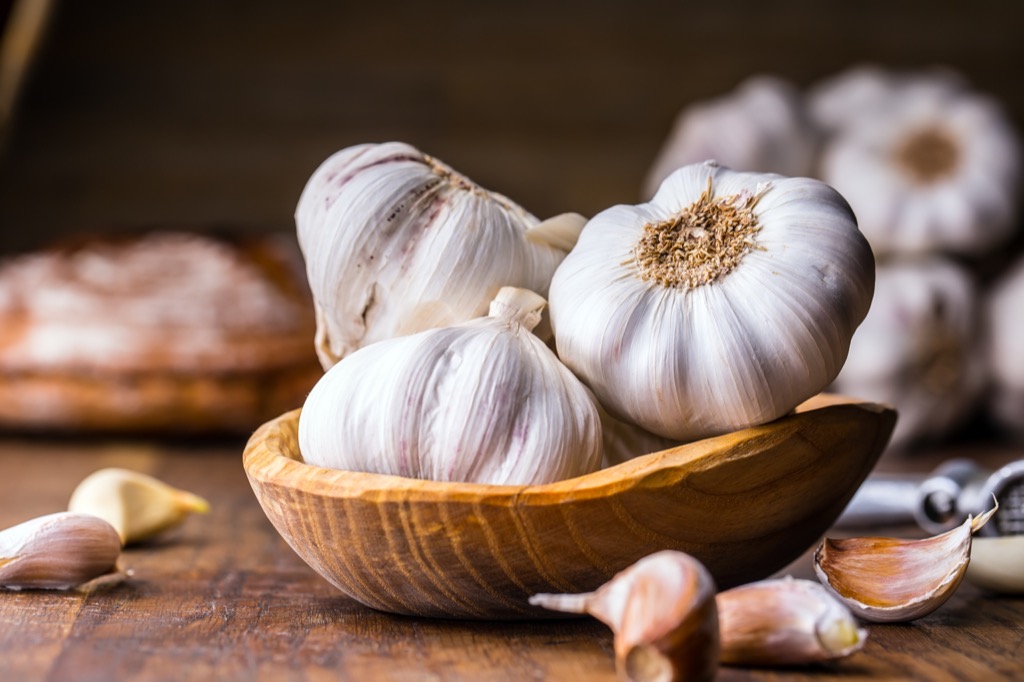
A diet rich in garlic makes your aorta more flexible and can increase circulation. In fact, a clove of fresh garlic every day can decrease your total cholesterol by almost 10 percent, according to an oft-cited 2005 study published in the journal American Family Physician.
Garlic also has powerful antiviral properties that fight infection. Just a couple of cloves of garlic, mixed into food, will jump-start your immune system and improve your chances of fighting off a virus.
82
Pick up the Chilean red.
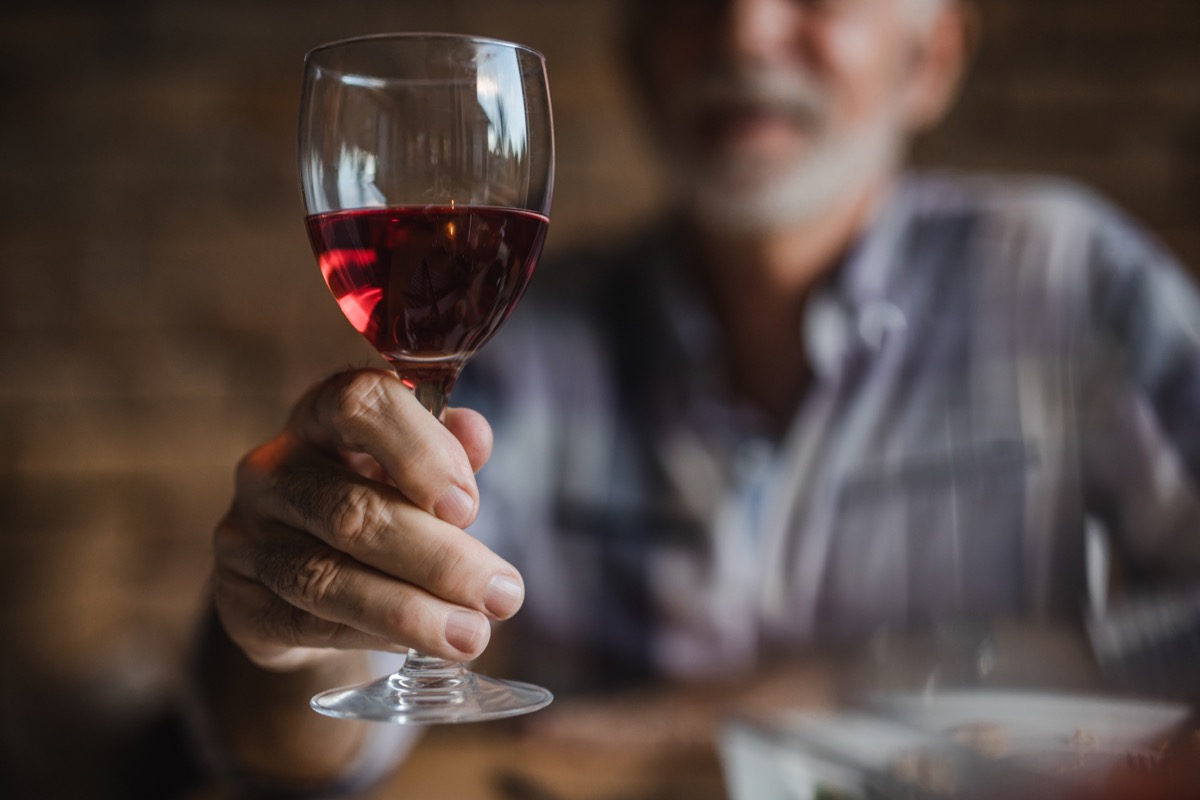
To reduce your risk of cancer, drink red wine from Chile. Compared with Cabernet Sauvignon from France, Chilean Cabernet contains 38 percent more flavonols, antioxidants that plunder cancer-causing free radicals.
83
Take your vitamin E supplement with whole milk.
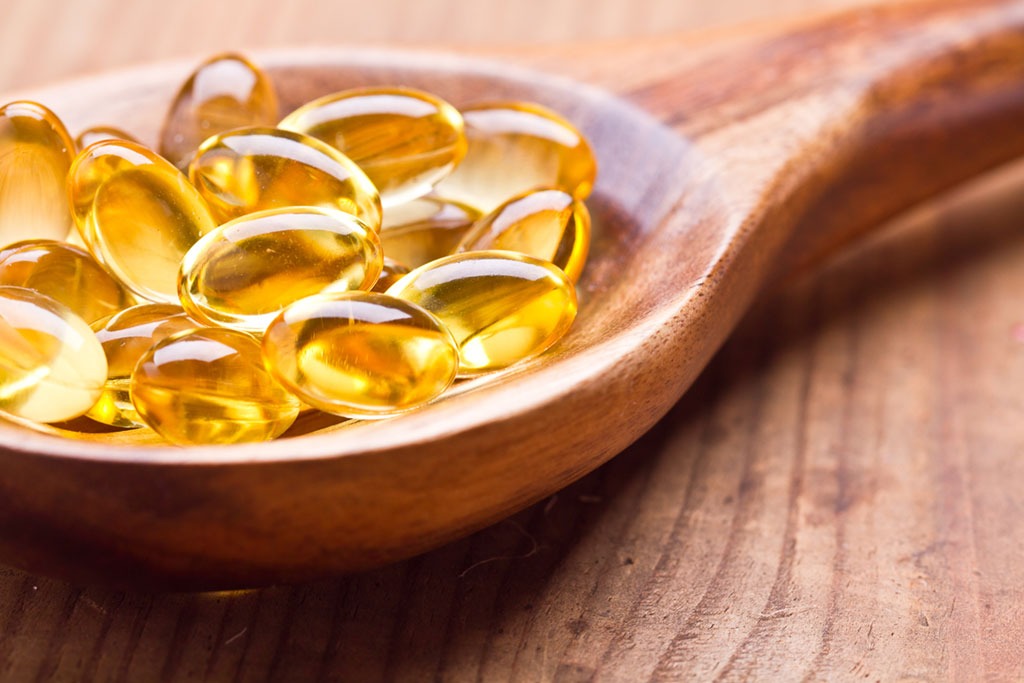
The nutrient, which helps to protect against heart disease, is fat-soluble. You’ll improve absorption if you take it with a drink containing some fat. (Skim milk or water won’t do.)
84
Order thin crust pizza.
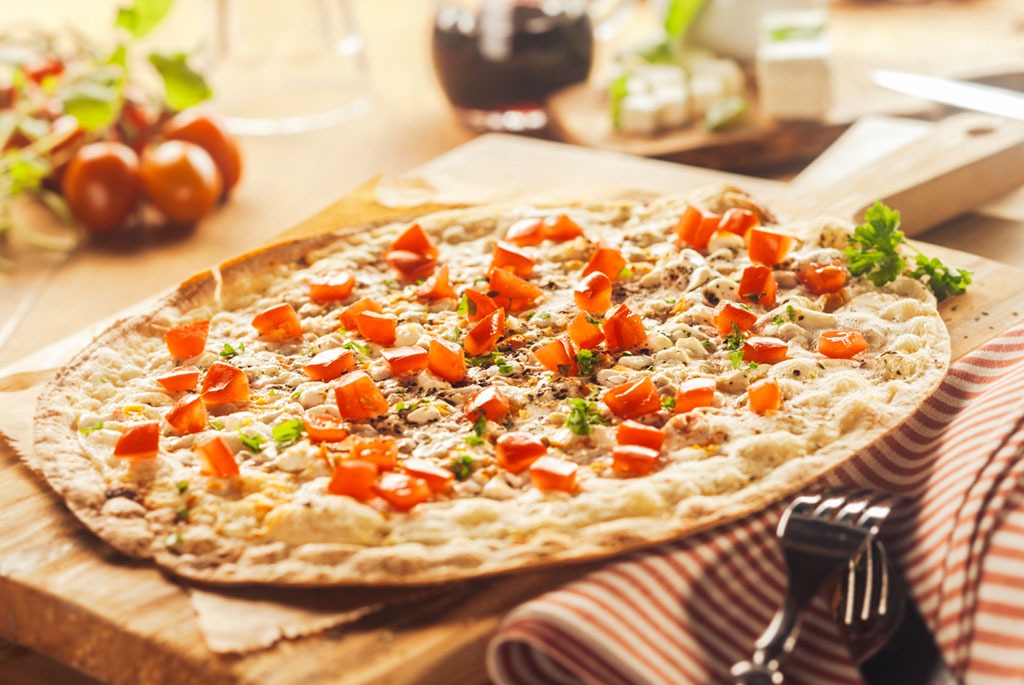
No, you don’t have to give up pizza entirely just to live a long life. On the contrary, one 2018 study published in the journal The Lancet found that low-carbohydrate diets, which tend to favor protein and fat, can contribute to shorter lifespans. Of course, this isn’t to say that you should be gorging on baguettes between meals; but opting for a simple thin crust pizza is a great way to satiate your carb cravings and consume far fewer calories than you would with your typical crust pie.
85
Get rid of hiccups with ice cubes.

Rub an ice cube on your Adam’s apple for a minute. The coldness interrupts the reflex arc from your brain to your diaphragm that causes hiccups, according to biochemist and chiropractor David Williams.
86
Read the paper.

According to a 2012 study published in the International Journal of Public Health, those who have the most exposure to the news and media in general are also the healthiest eaters—a correlation that the researchers didn’t believe was an anomaly. So, tuning into the six o’clock roundup every day could help you live just a few years longer.
87
Break a fever.
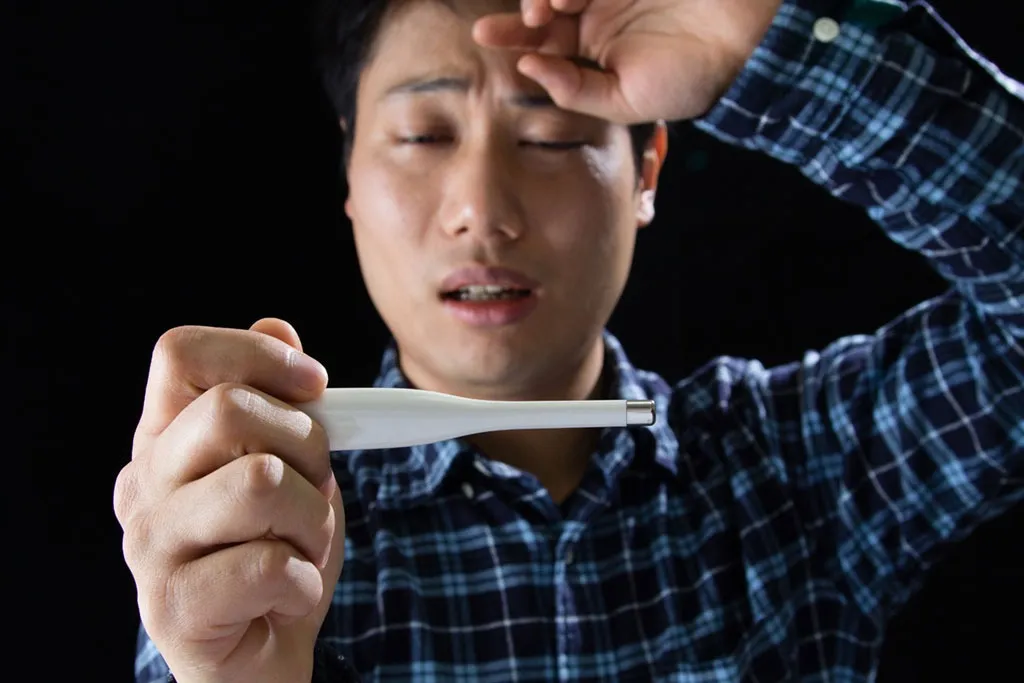
There are several ways to break a fever—as long as it’s under 104 degrees Fahrenheit. (If it’s over 104 degrees, seek medical help immediately). For those manageable fevers that you wish to break on your own, Harvard Medical School suggests drinking plenty of fluids, getting rest, taking ibuprofen, naproxen, acetaminophen, or aspirin, and taking a slightly warm bath.
88
Tilt your rearview mirror up to save your back.

The vast majority of your lower back pain is caused by slouching. Tilt your rearview mirror up a bit. That way, you make yourself sit up perfectly straight to see the cars behind you. If you can’t see the cars, you’re slumping.
89
Replace your worn-out running shoes.
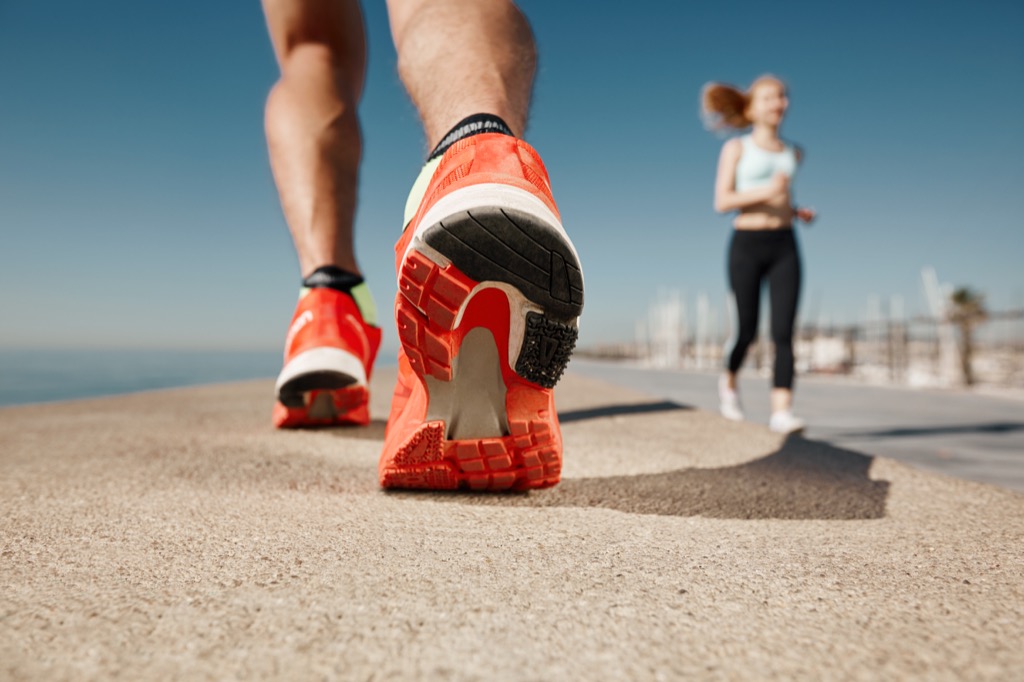
In addition to choosing to wear supportive shoes in general, the Mayo Clinic suggests throwing out your running shoes every 400 to 500 miles in order to ensure that you’re getting the right amount of support and cushion for your arches. If you fail to throw away your worn out shoes, you could be putting yourself at risk for developing plantar fasciitis, an inflammation of the thick band of tissue that runs across the bottom of your foot and connects your heel bone to your toes.
90
Chew sugarless gum to get rid of heartburn.

Chewing a stick of sugarless gum for a half hour after meals can prevent or reduce heartburn. Chewing increases saliva flow, which neutralizes stomach acid and washes it away from your esophagus, according to Harvard Medical School.
91
Thwart cold sores with aspirin.
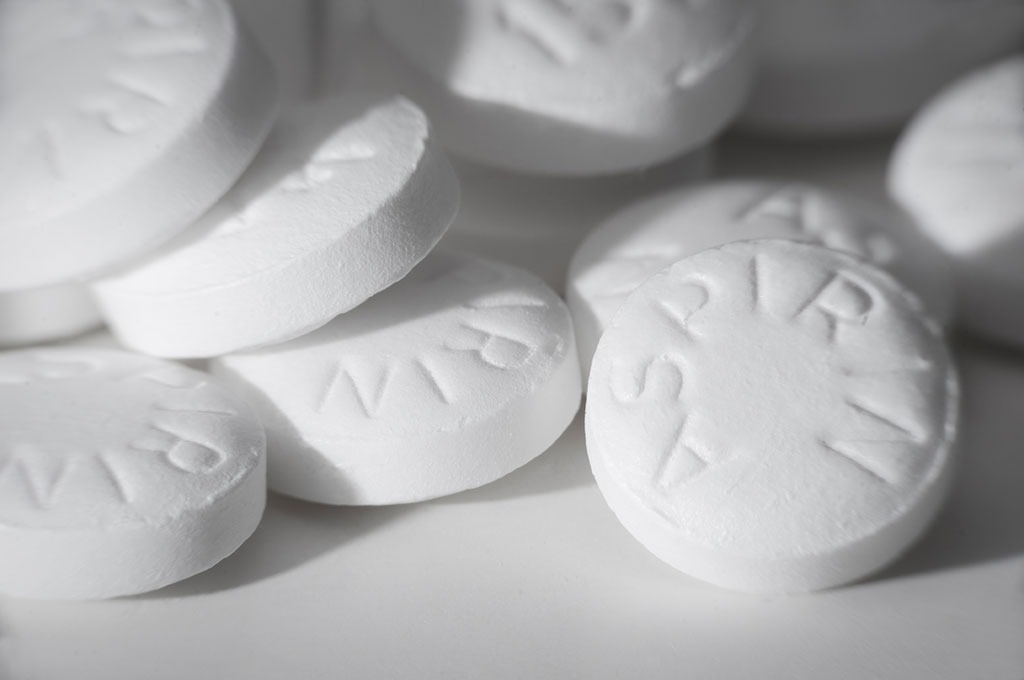
Popping 125 milligrams of aspirin daily can cut the duration of a cold sore from an average of eight days to five. How? Aspirin helps to reduce the inflammation that causes a cold sore, so the area heals faster, according to the Herpes Viruses Association.
92
Always soothe and treat a hit to the groin area.
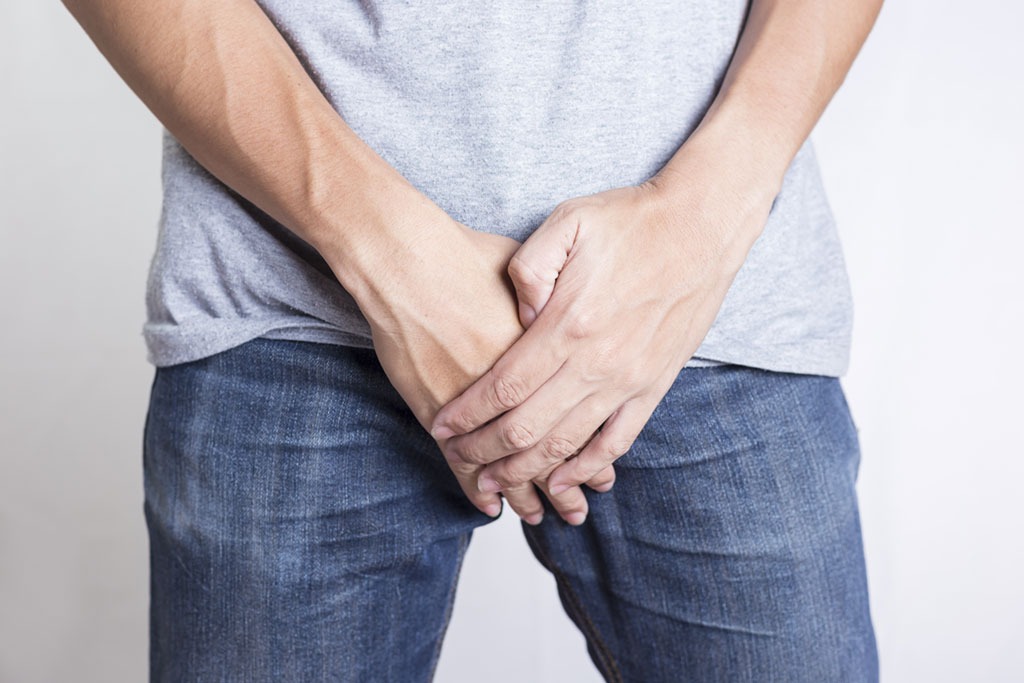
If you take a hit to the groin, it would be beneficial to use some kind of support (like a jock strap), along with an ice pack, to reduce the inflammation of the affected area, as Harry Fisch, MD, a urologist, explained to ShareCare. To get the blood flowing, lie down and lay a rolled-up T-shirt underneath your testicles, with the ends of the roll resting on your thighs. Take Tylenol for the pain. After 24 hours, if you’re still experiencing pain and swelling in the area, go to the emergency room.
93
Properly treat a bee sting.
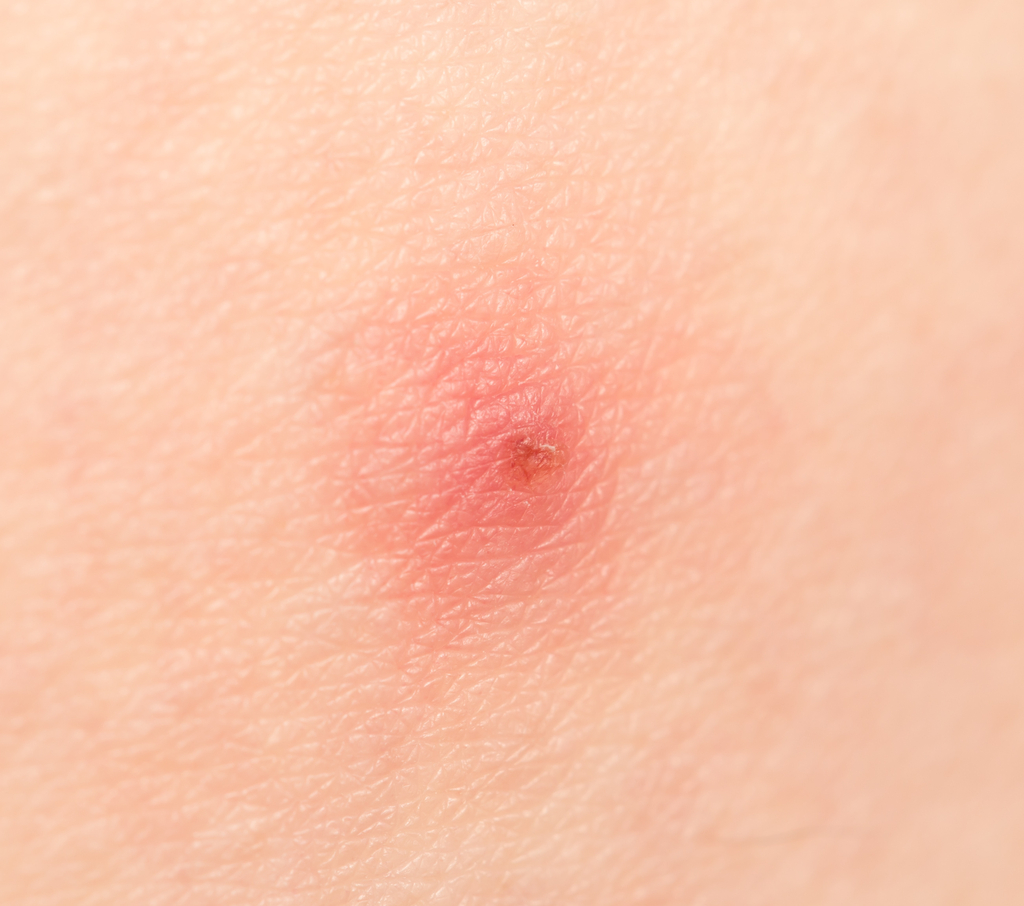
First, be sure to remove the bee’s stinger from your skin. Then, reduce the inflammation with ice, per the American Academy of Dermatology. Next, rub aspirin or meat tenderizer on the site to break down the venom. Relieve the pain and itching by dabbing the area with a pasty salve of water and baking soda. If you’ve found the swelling has found its way to other parts of your body, like your face or neck, head to the emergency room immediately, as you might be experiencing an allergic reaction to the bee sting.
94
Be nicer.

According to a 2012 study conducted at the Albert Einstein College of Medicine at Yeshiva University, there is a scientifically proven correlation between treating others with kindness and longer lifespans. A bit of positivity in your life could ensure that you see your 90th birthday.
95
Remove your wallet from your back pocket.
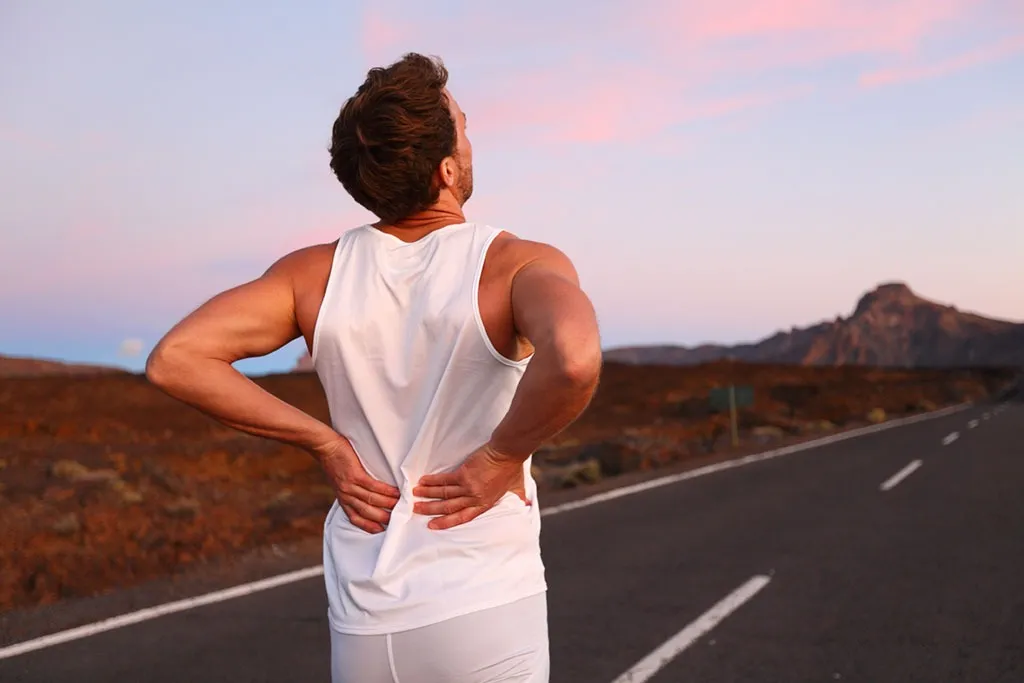
If you’re having lower back pain, try taking your wallet out of your back pocket. As a 2018 study published in the journal Cereus points out, sitting on your wallet can put pressure on your sciatic nerve, the major nerve running through the buttocks.
96
Use tea bags for your canker sores.
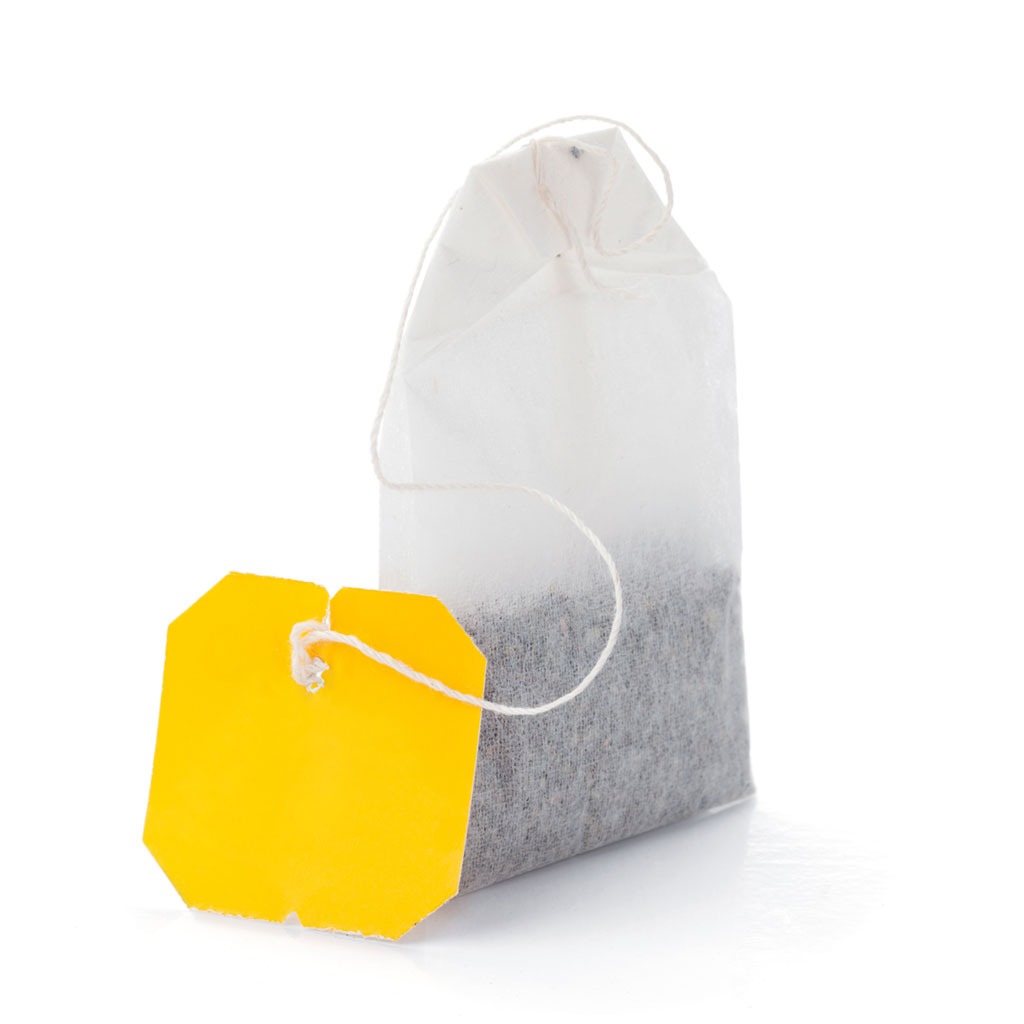
When you feel a canker sore coming on, hold a wet tea bag on it. The tannin from the tea acts as an astringent, getting rid of the canker sore while simultaneously relieving some of the associated pain, says Alpenglow Dental.
97
And if that doesn’t work, help regulate them with yogurt.
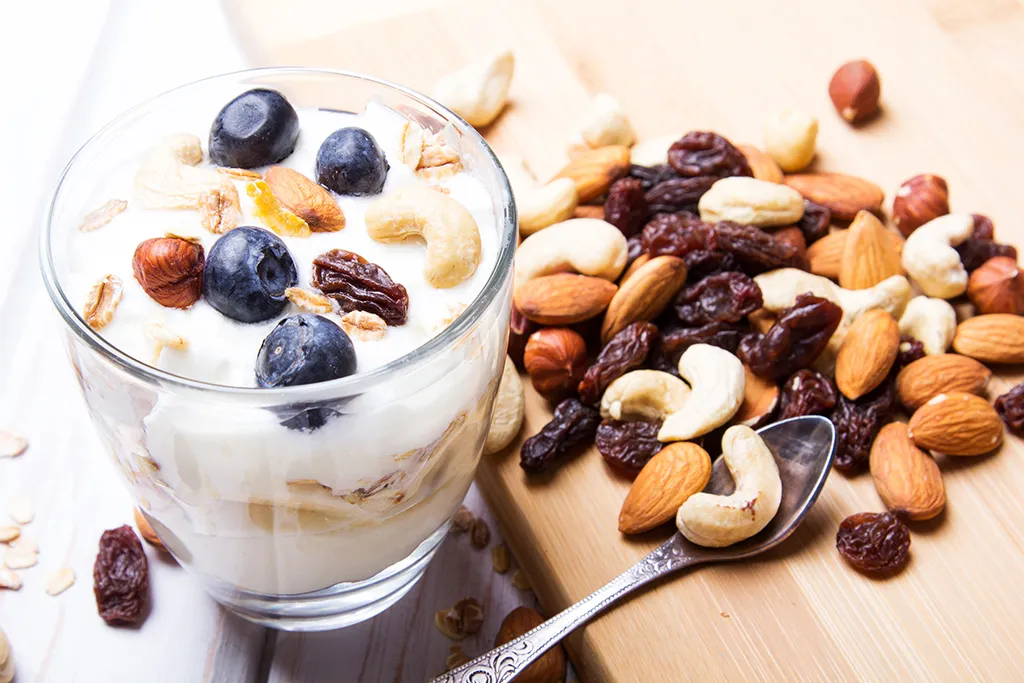
If you find that canker sores are a constant presence, your mouth may be screaming for more acidophilus. This beneficial bacterium can help regulate your mouth’s natural flora, which can otherwise run amok and cause sores and gum problems. Eat a cup of yogurt as a snack every day, or buy acidophilus in pill form, Alpenglow Dental suggests.
98
Work out for a boost of brainpower.
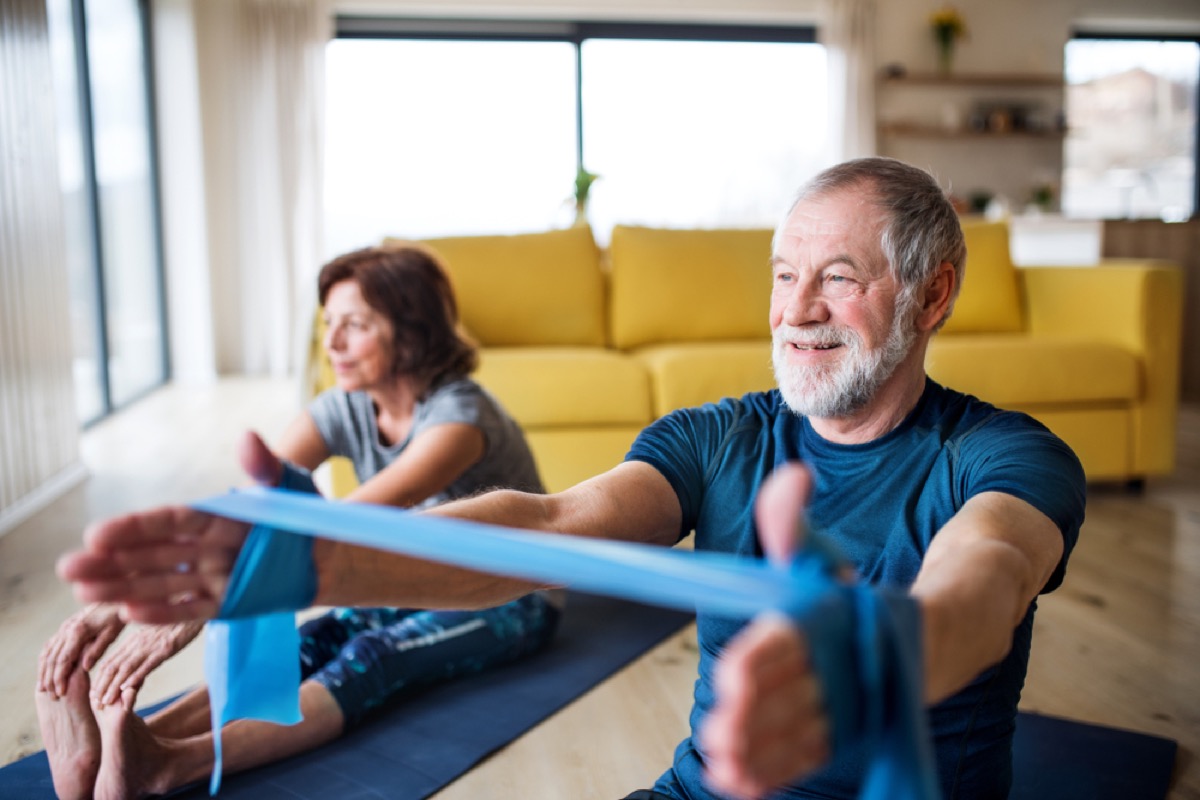
Exercise doesn’t just deliver physical benefits. It also increases the flow of blood and oxygen to the brain, thereby making you mentally quicker and potentially even protecting you against Alzheimer’s disease. One 2018 study published in the journal Neurology found that older individuals with noted cognitive decline who consistently exercised for six months saw a significant change in their executive functioning skills.
99
Stop clenching your teeth.

Clenching your teeth can make your muscles tight and provoke jaw pain. For quick relief, Colgate suggests pressing a fist under your chin and then trying to open your mouth, resisting jaw movement with the fist. Hold for 10 seconds, and repeat as necessary.
100
Drink more green tea.
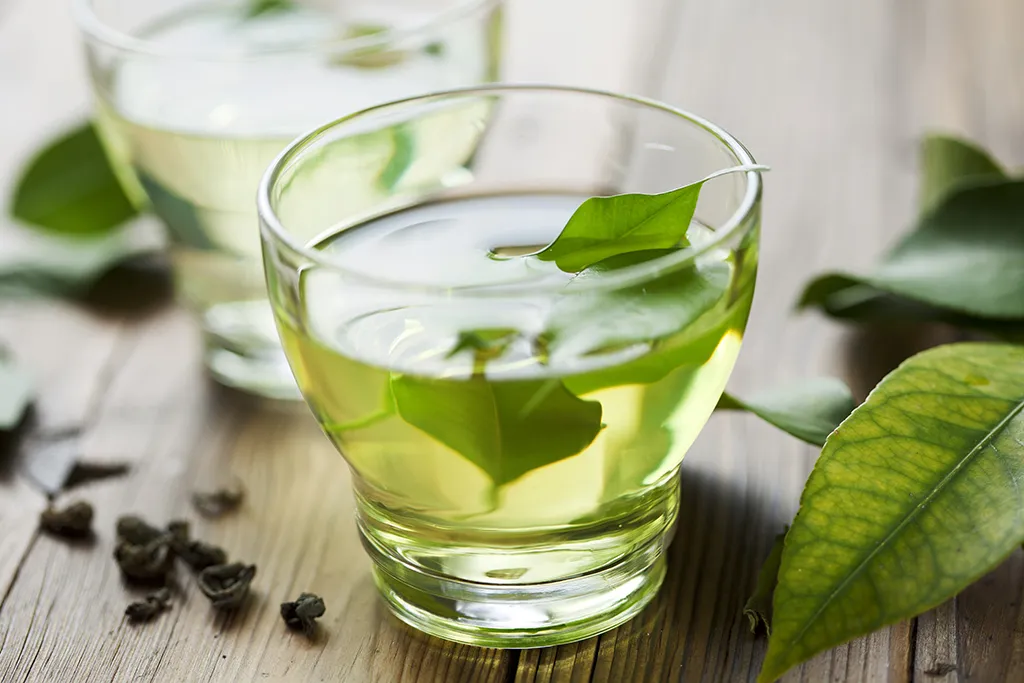
Green tea is good for your allergies. As a 2010 study published in the Journal of Agricultural and Food Chemistry explains, a chemical in green tea actually blocks the production of an allergy-triggering compound called immunoglobulin E, thus giving you the ability to catch a break from your allergies.
101
Eat spinach.
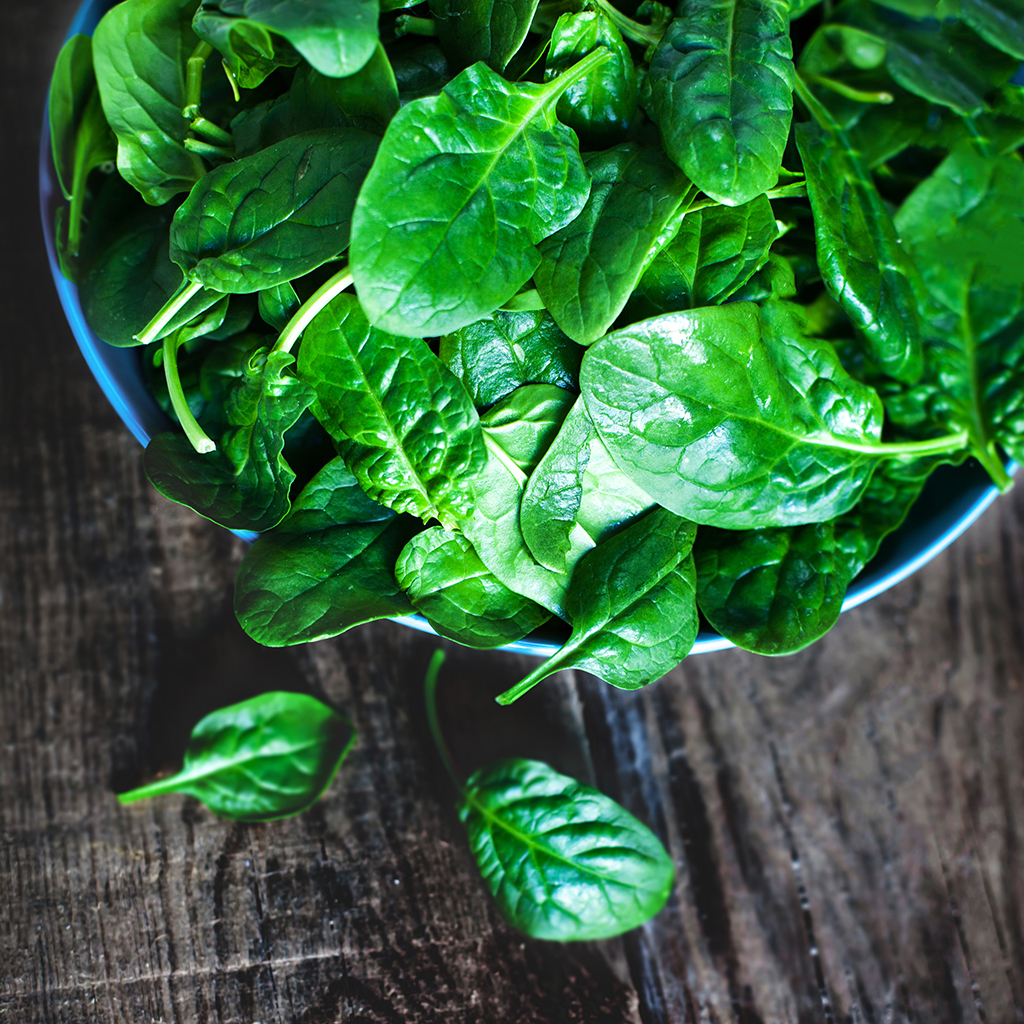
To ensure that both your ticker and your nether regions are healthy well into your golden years, chomp on some spinach. Rich in omega-3s and folate, spinach can help reduce the risk of heart disease, stroke, osteoporosis, and age-related sexual issues.